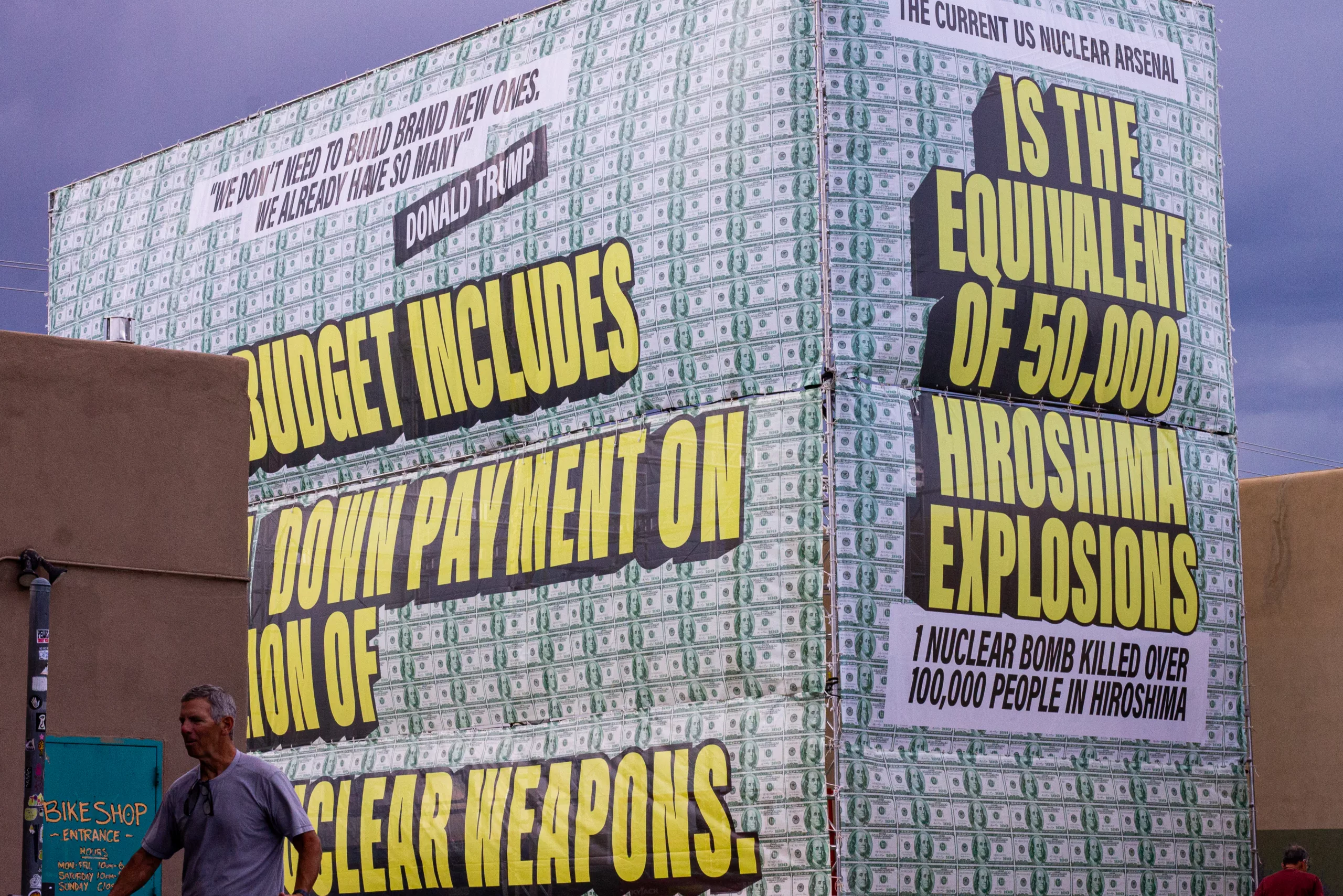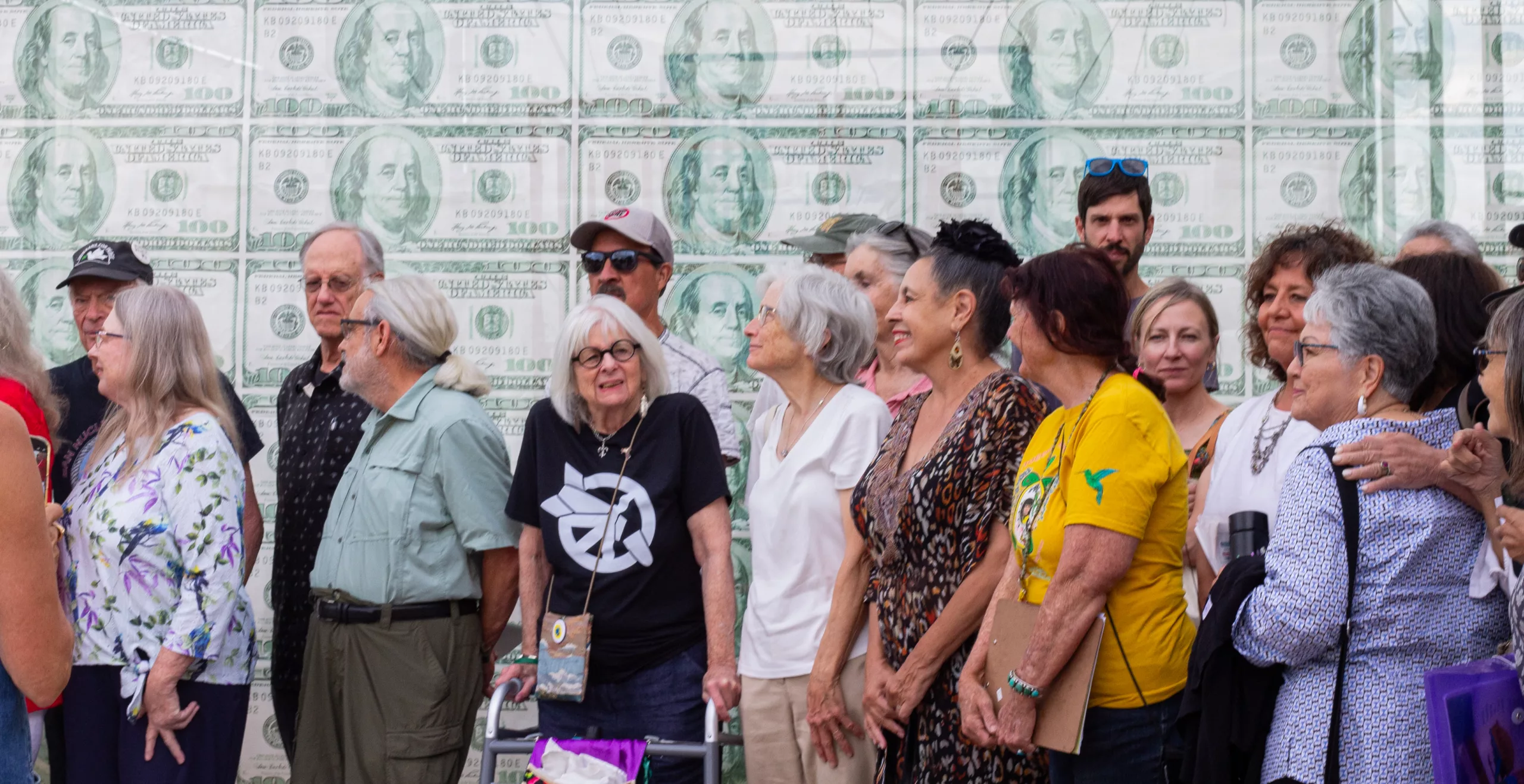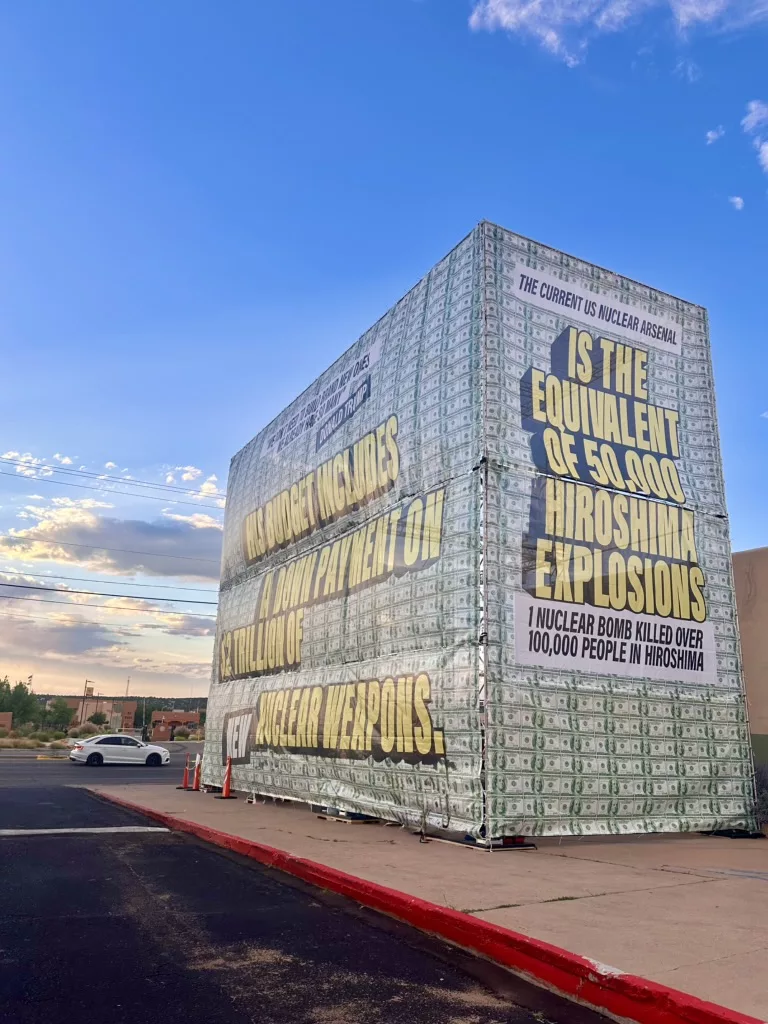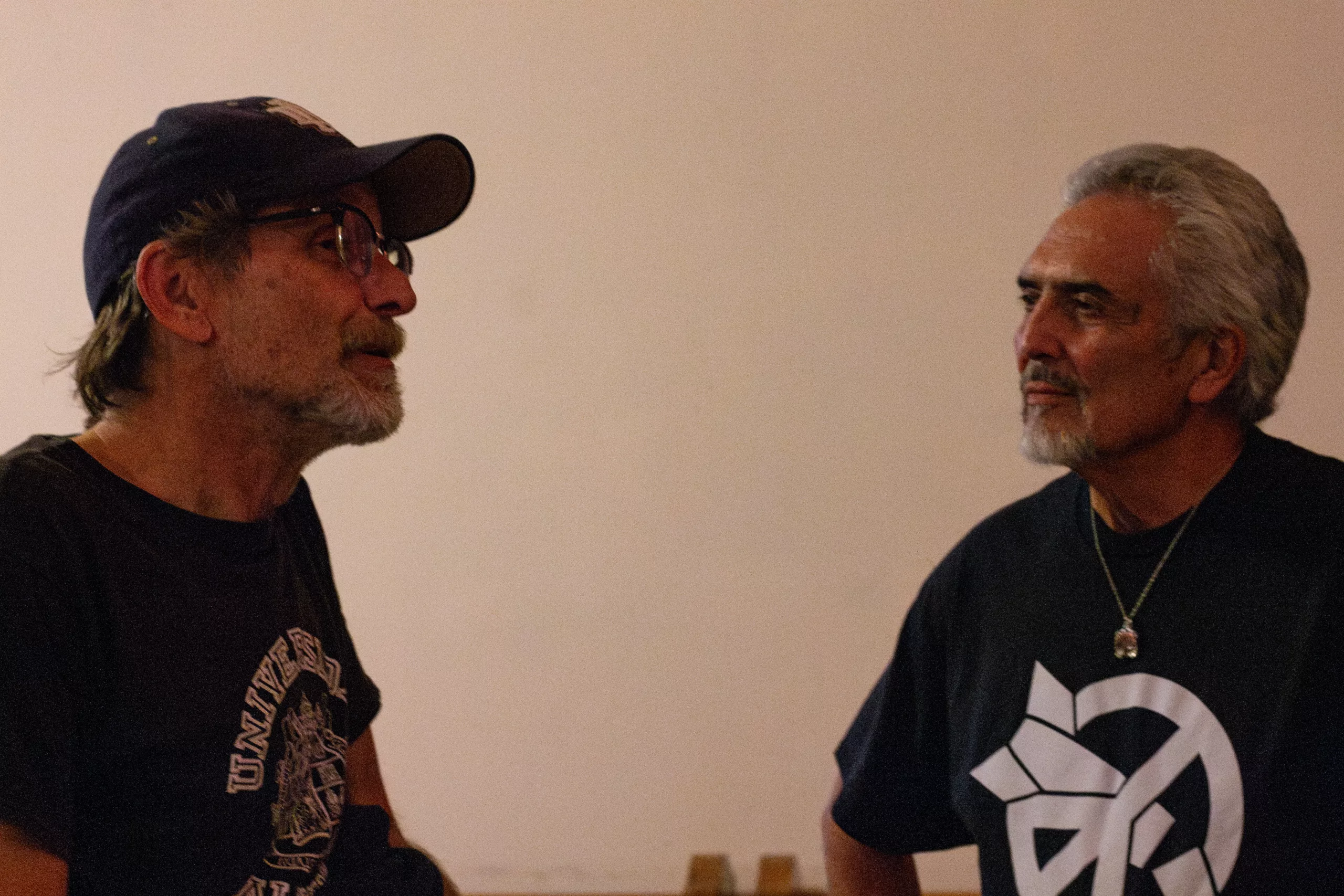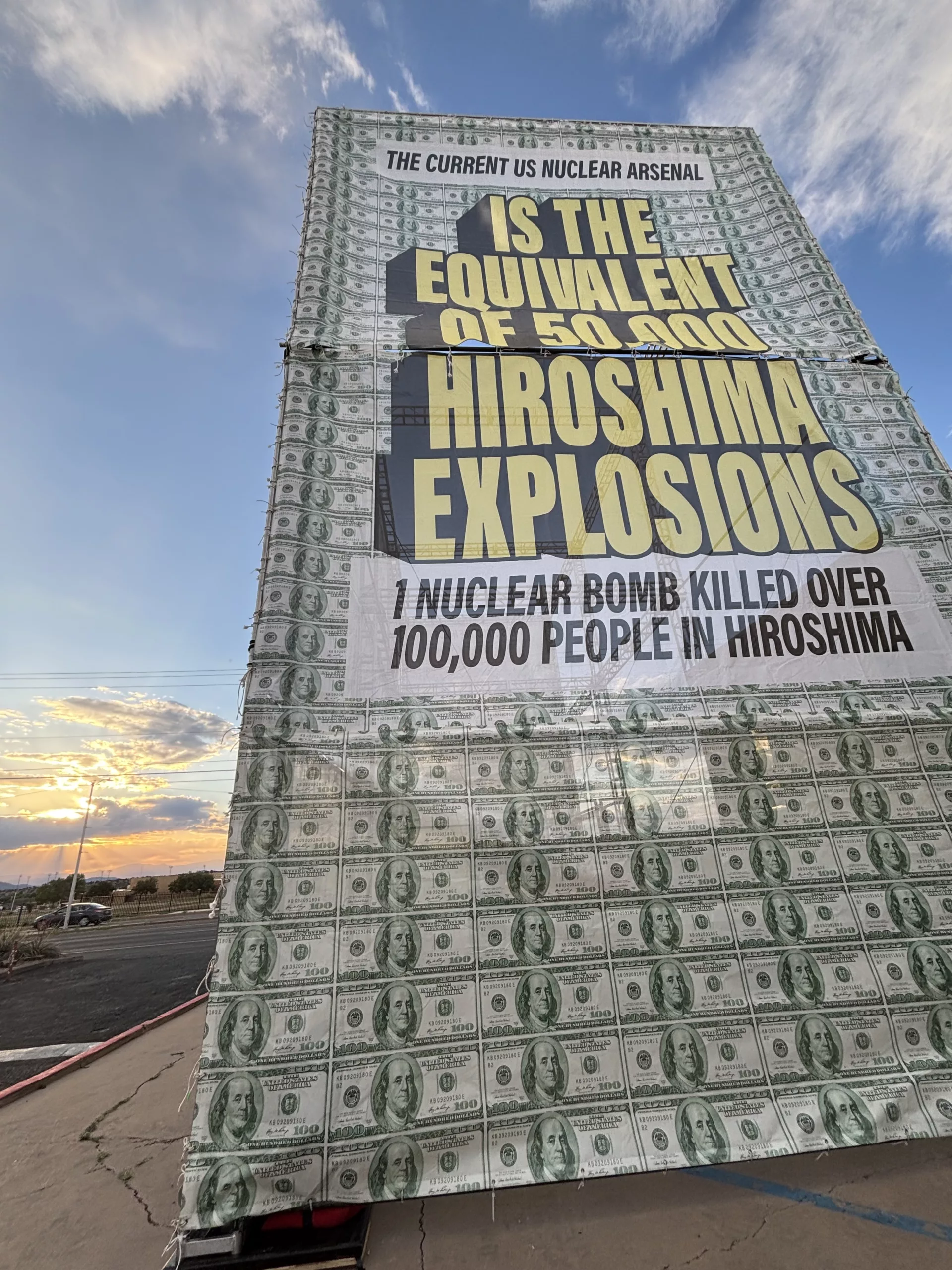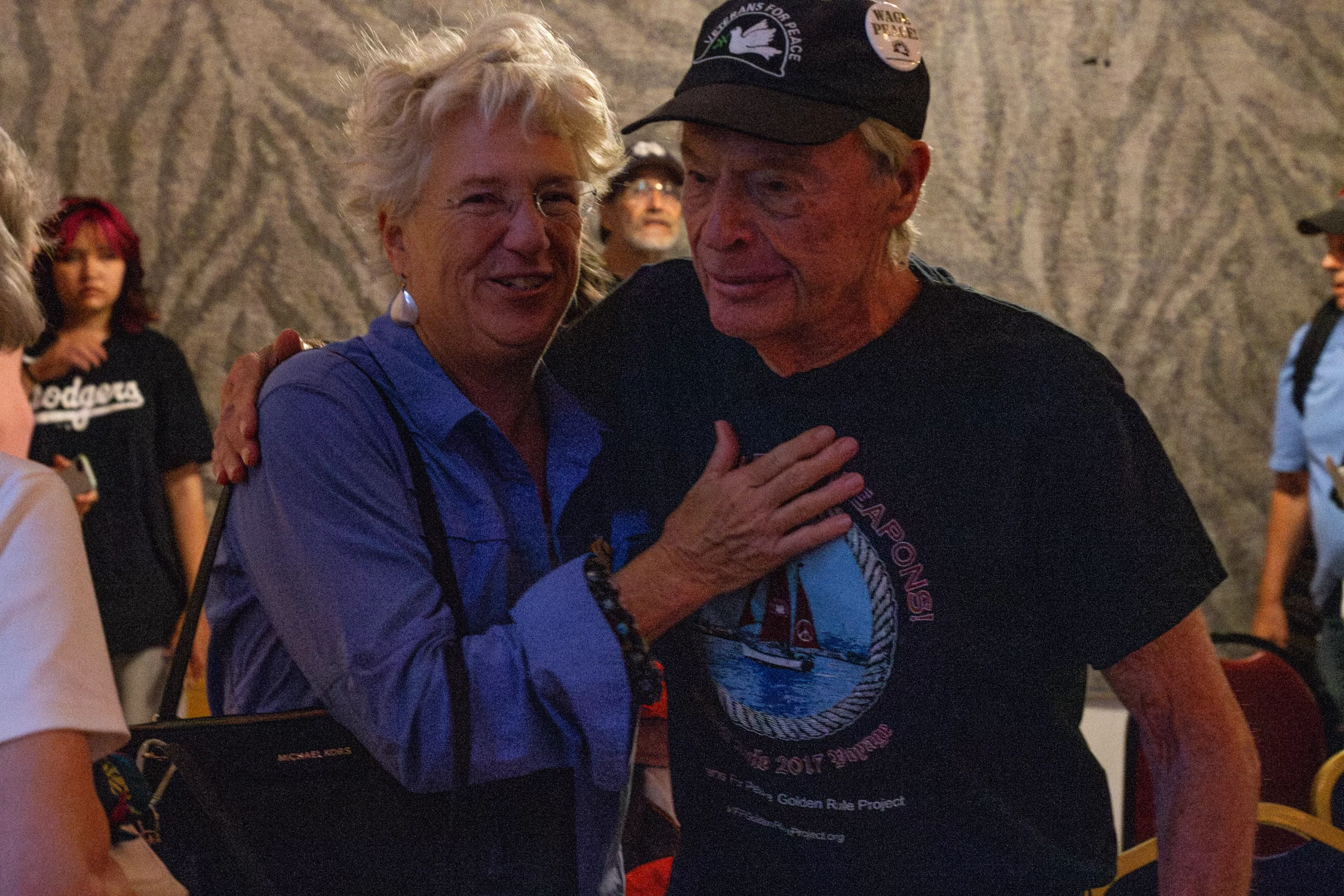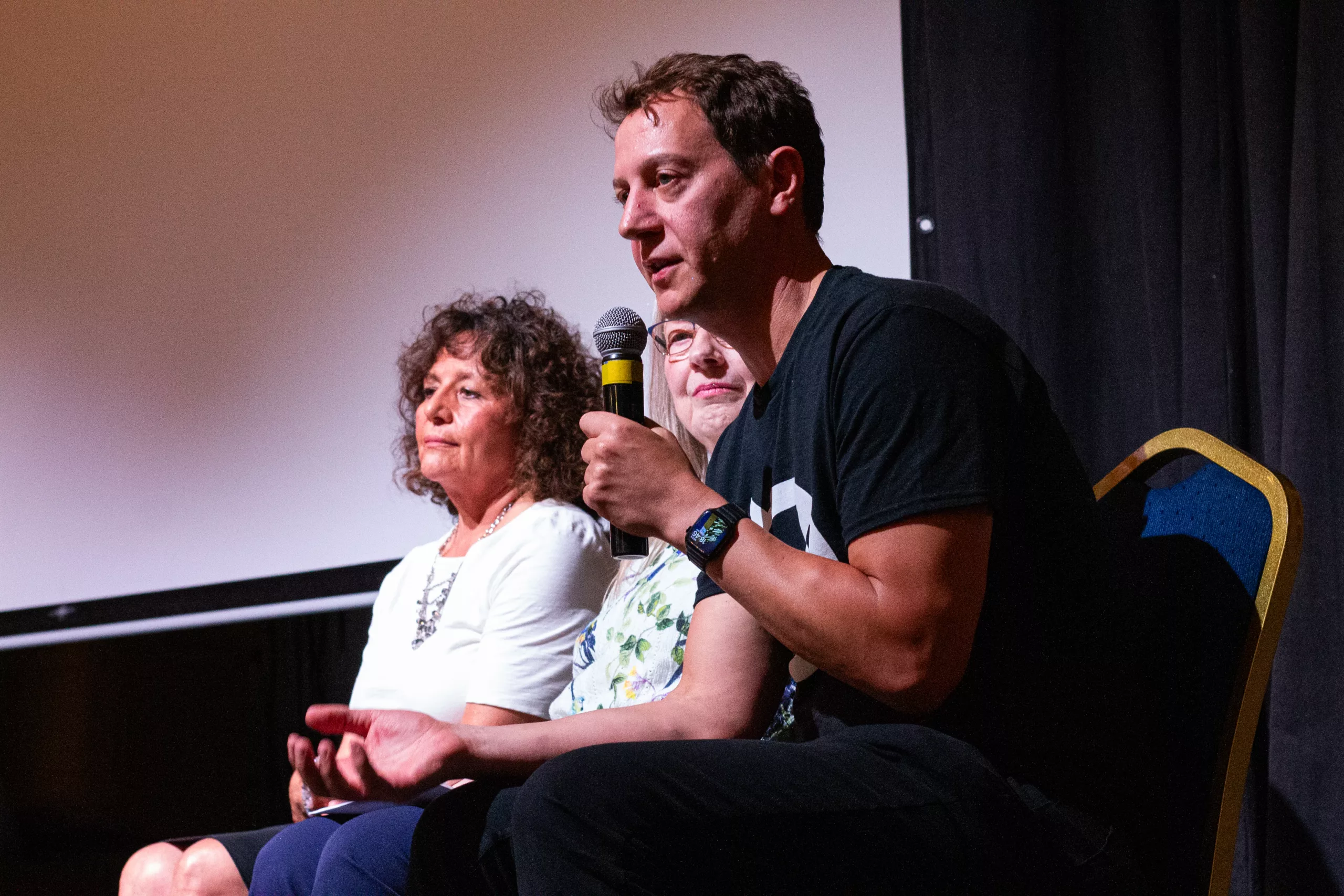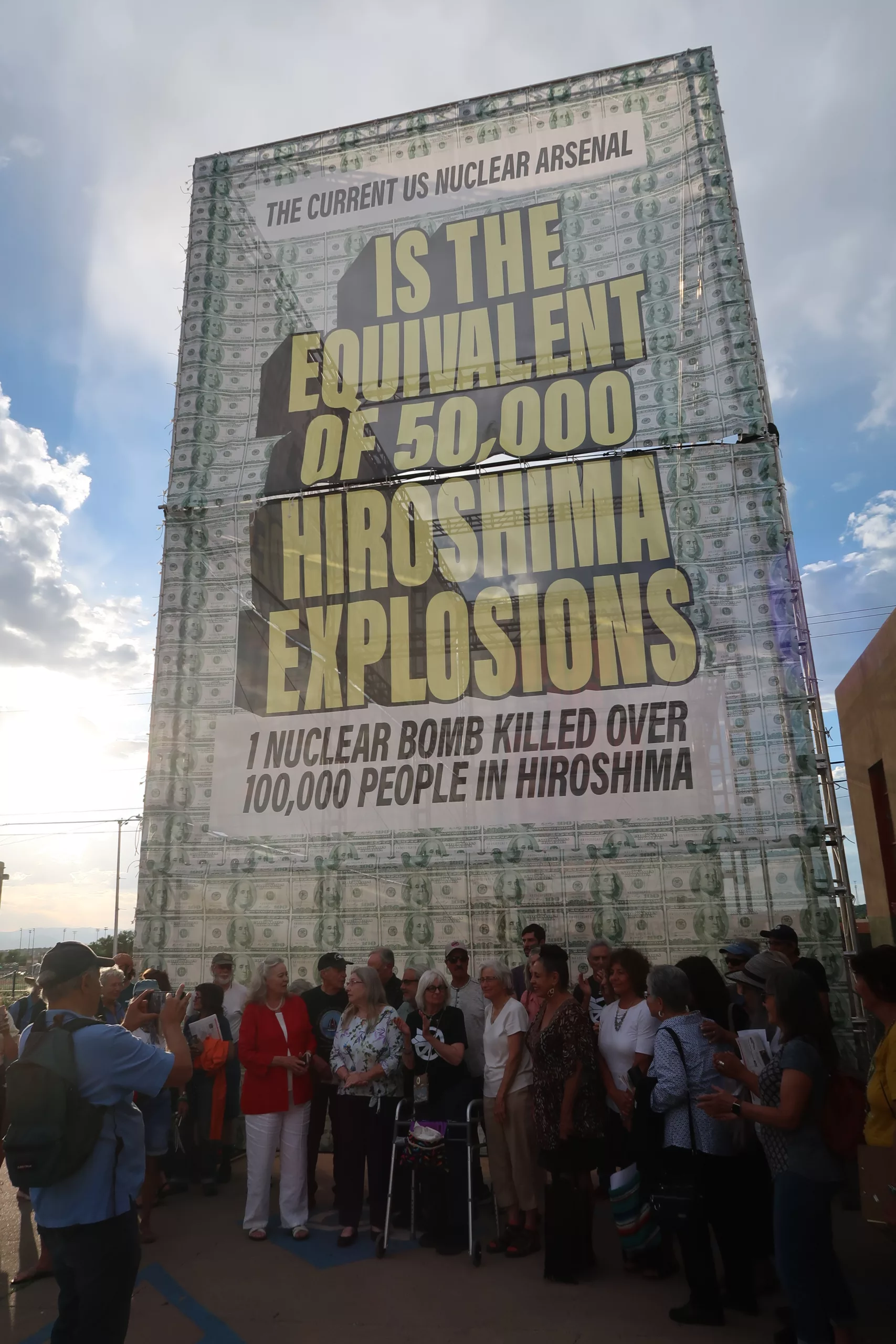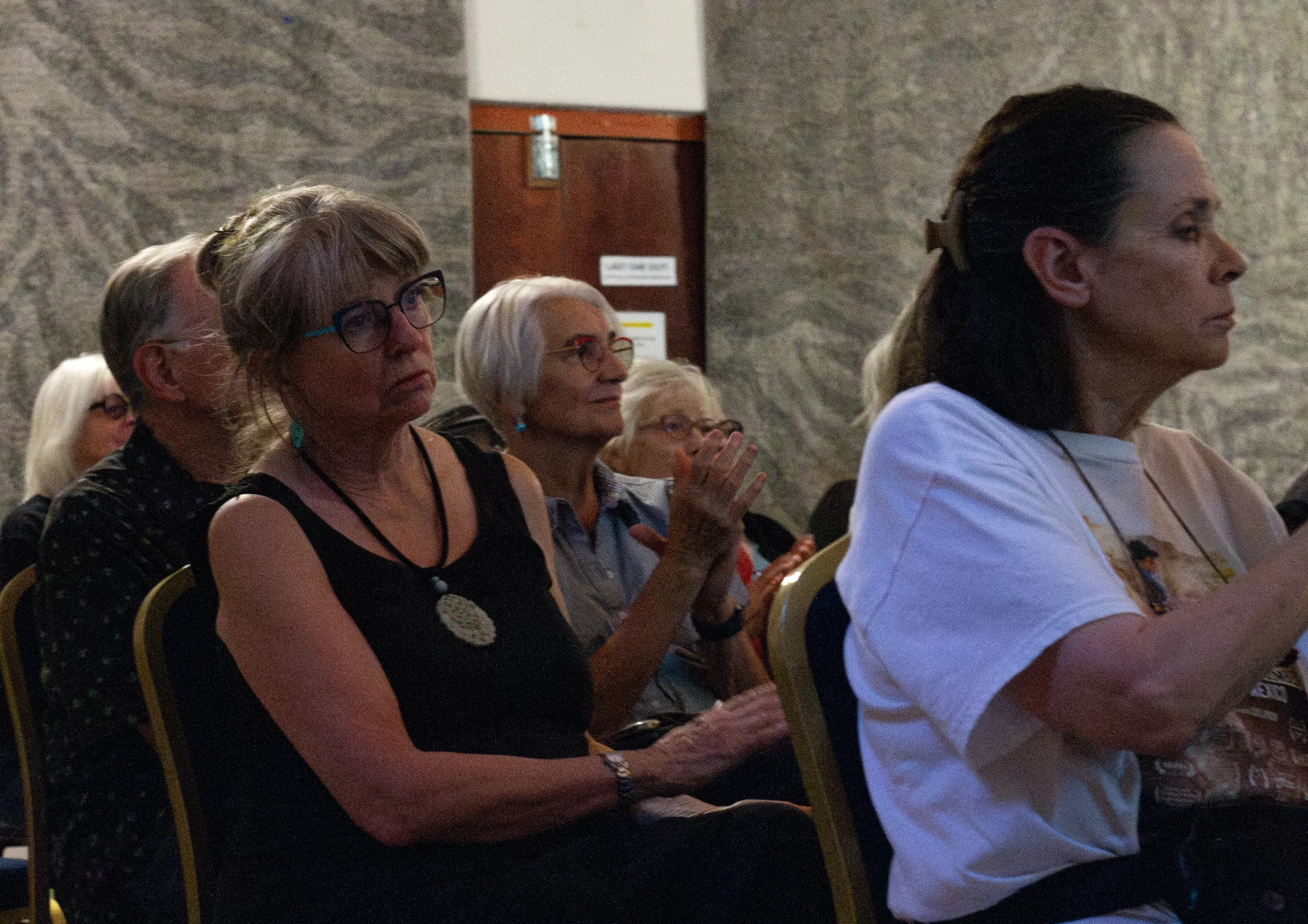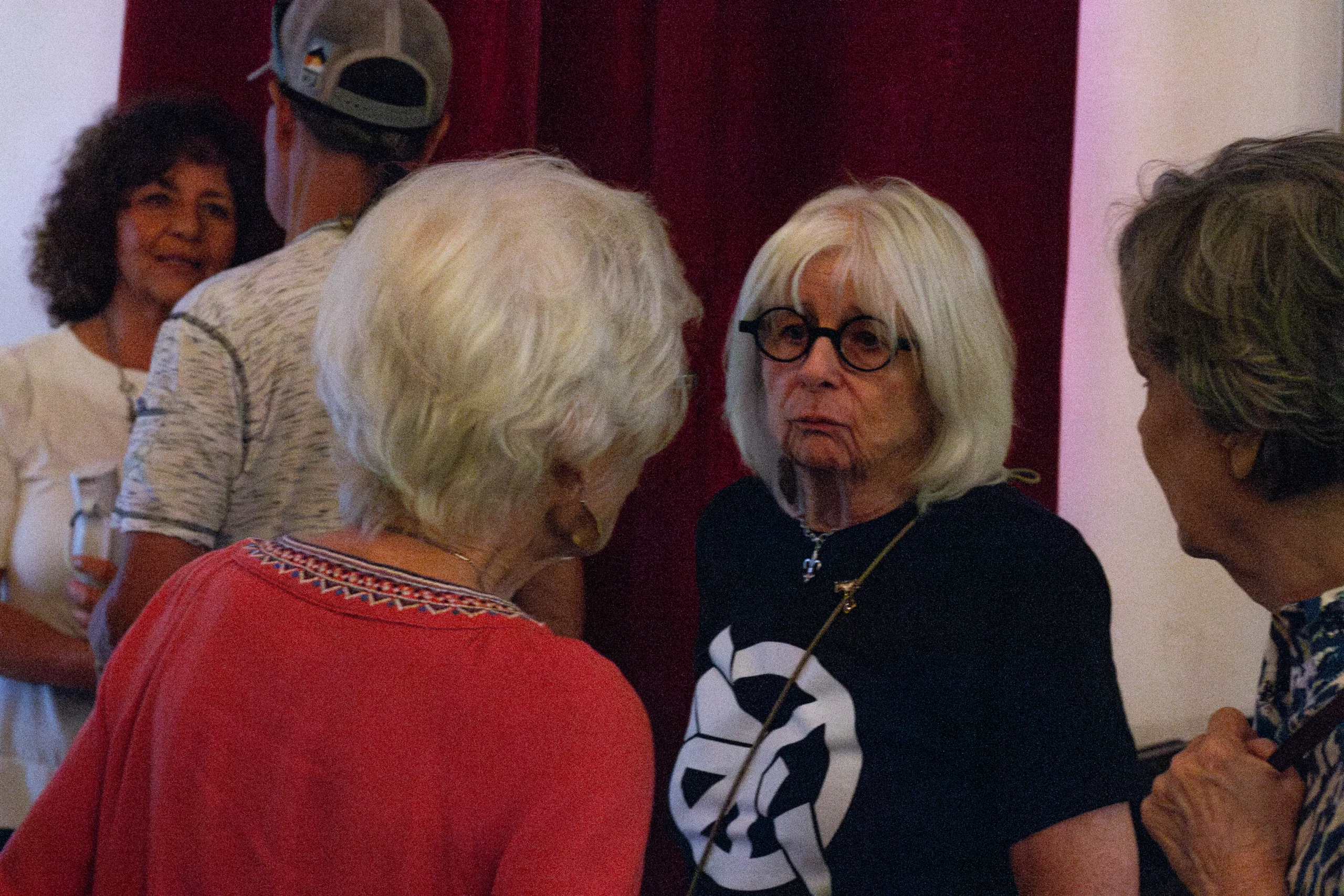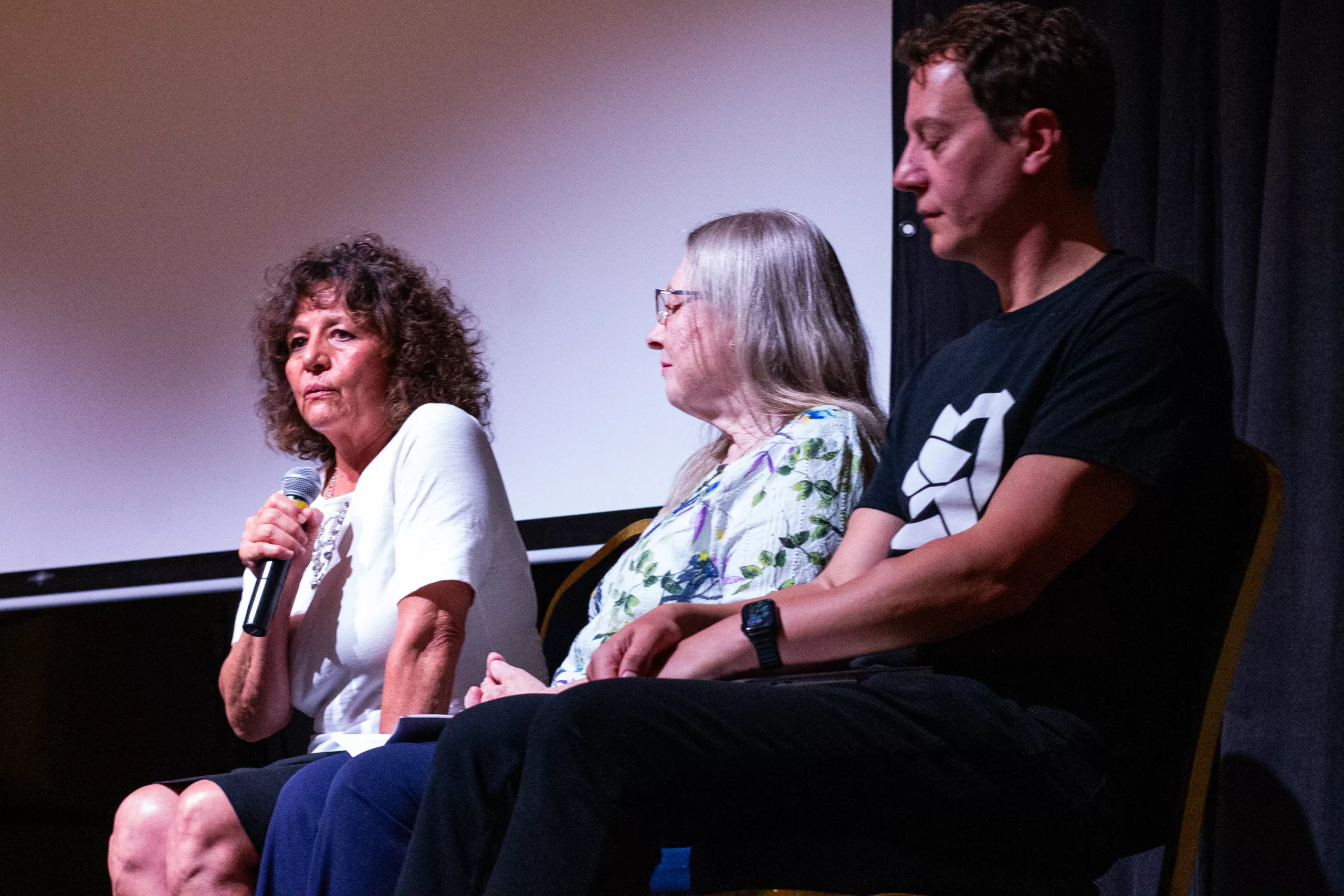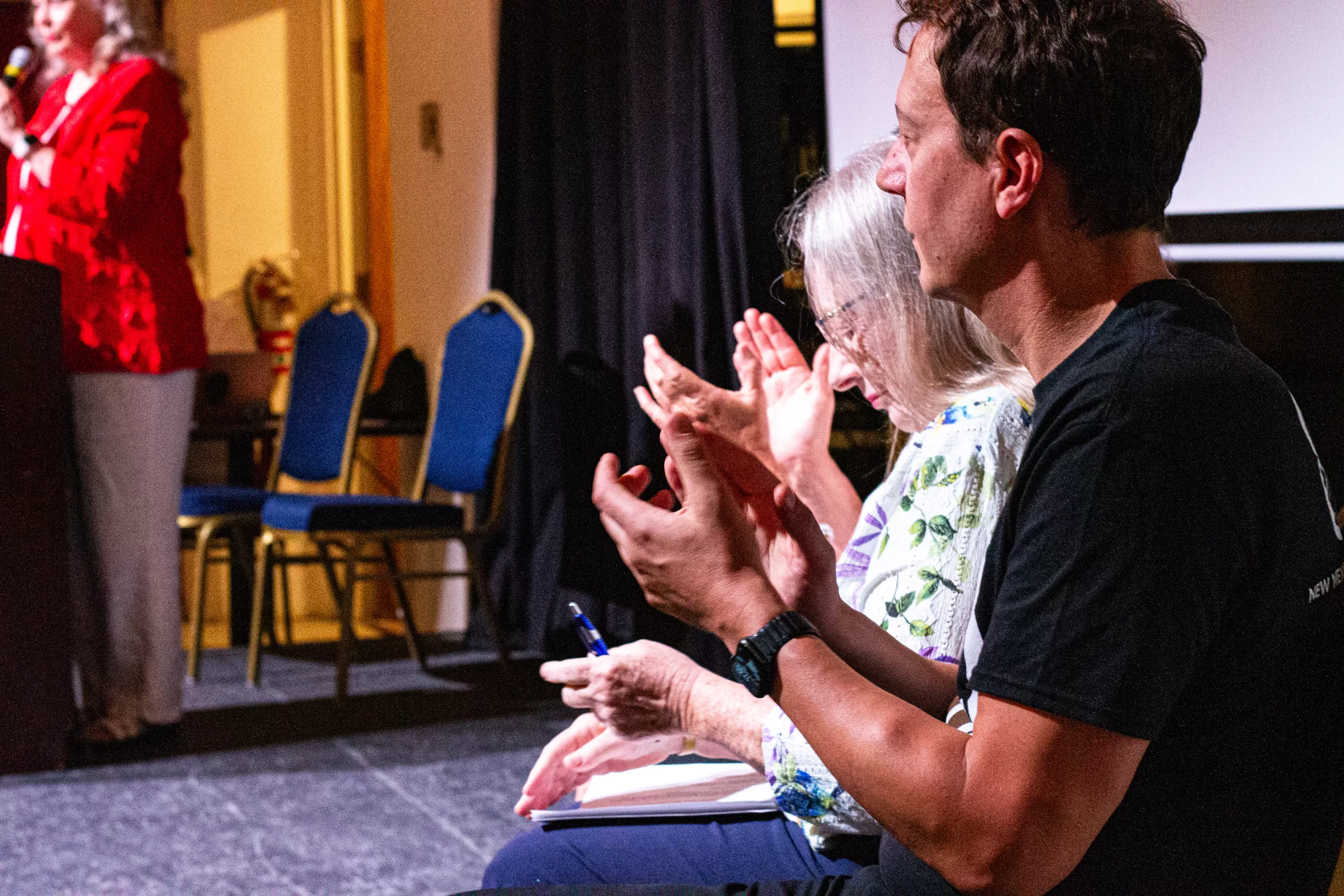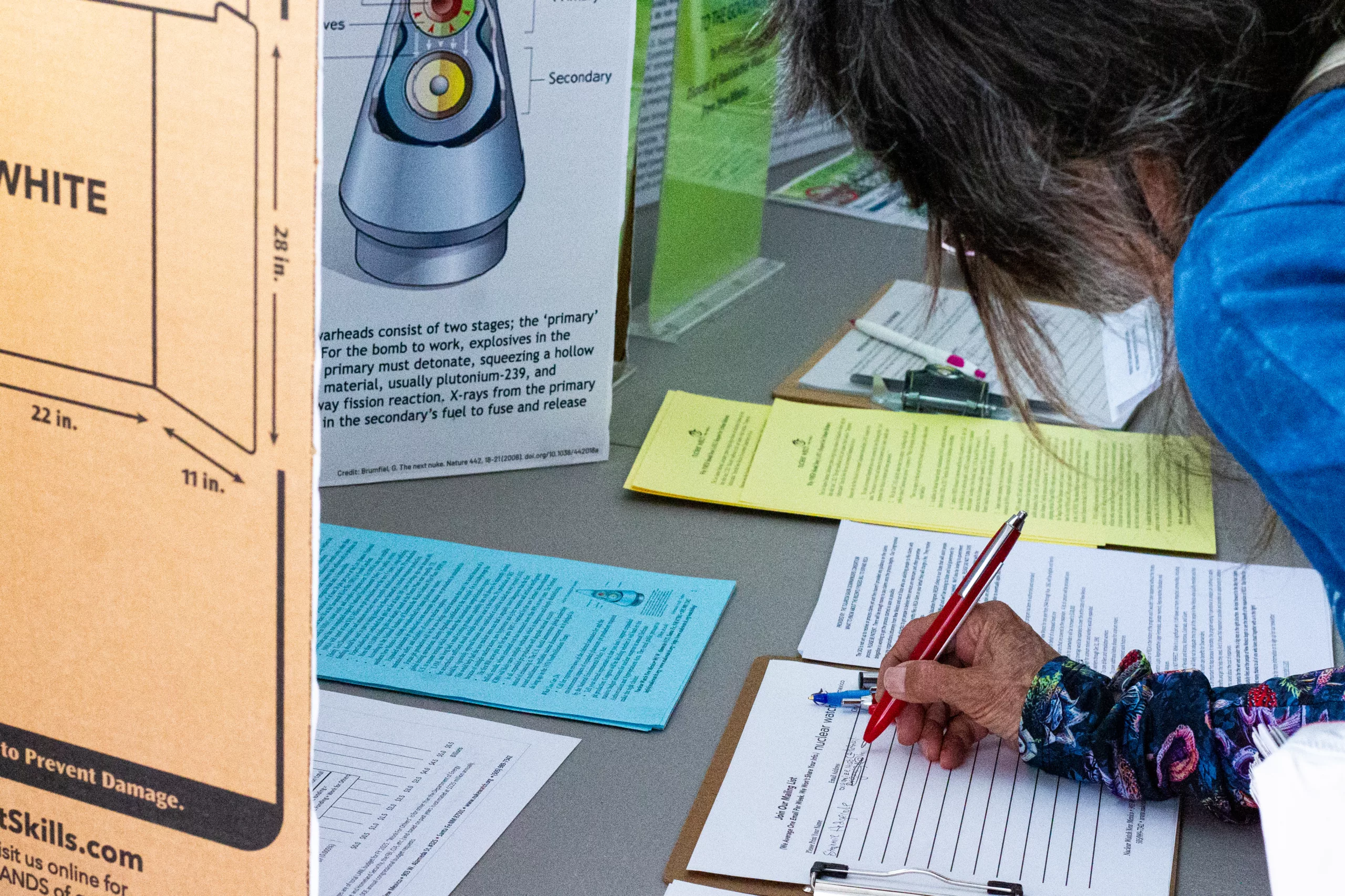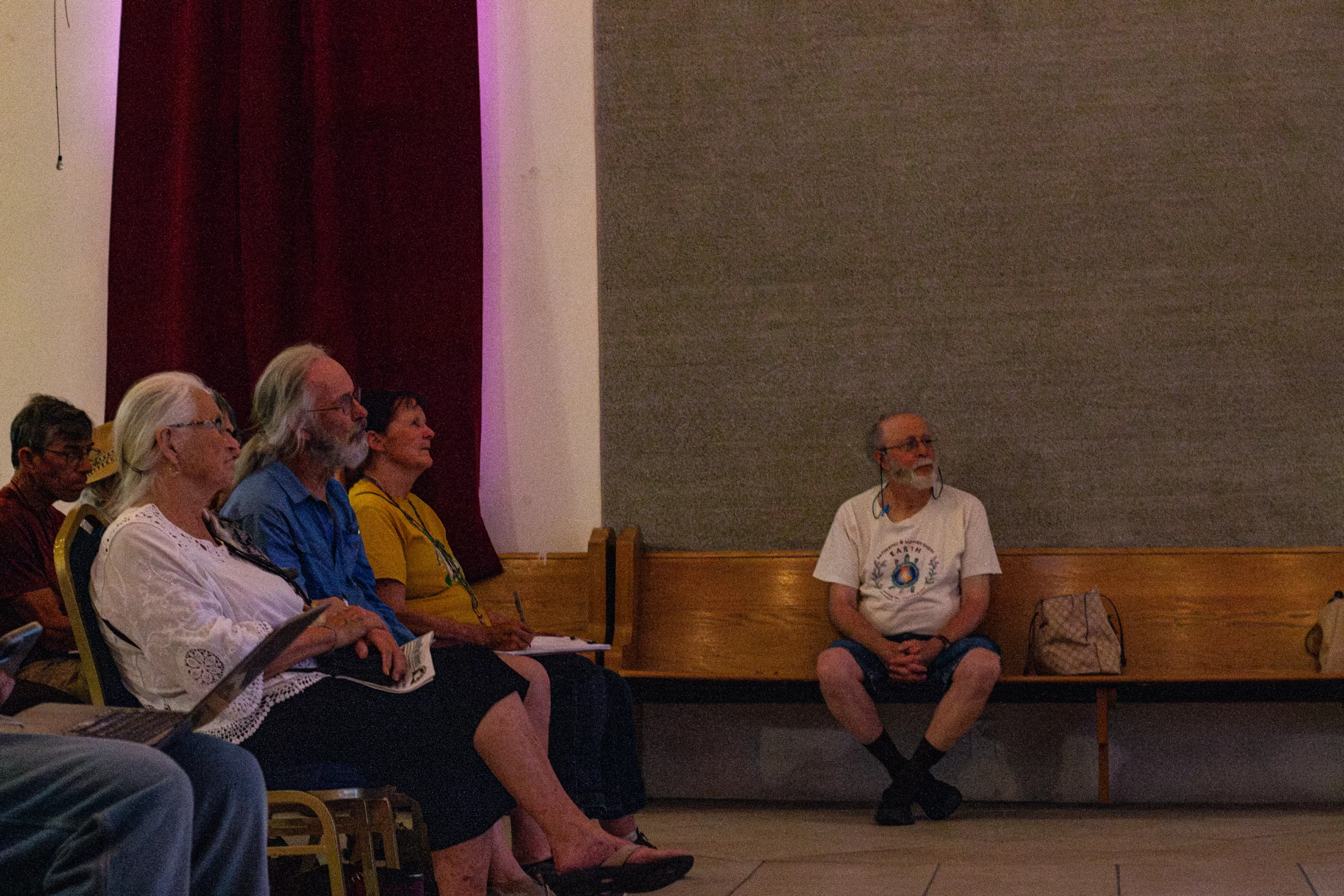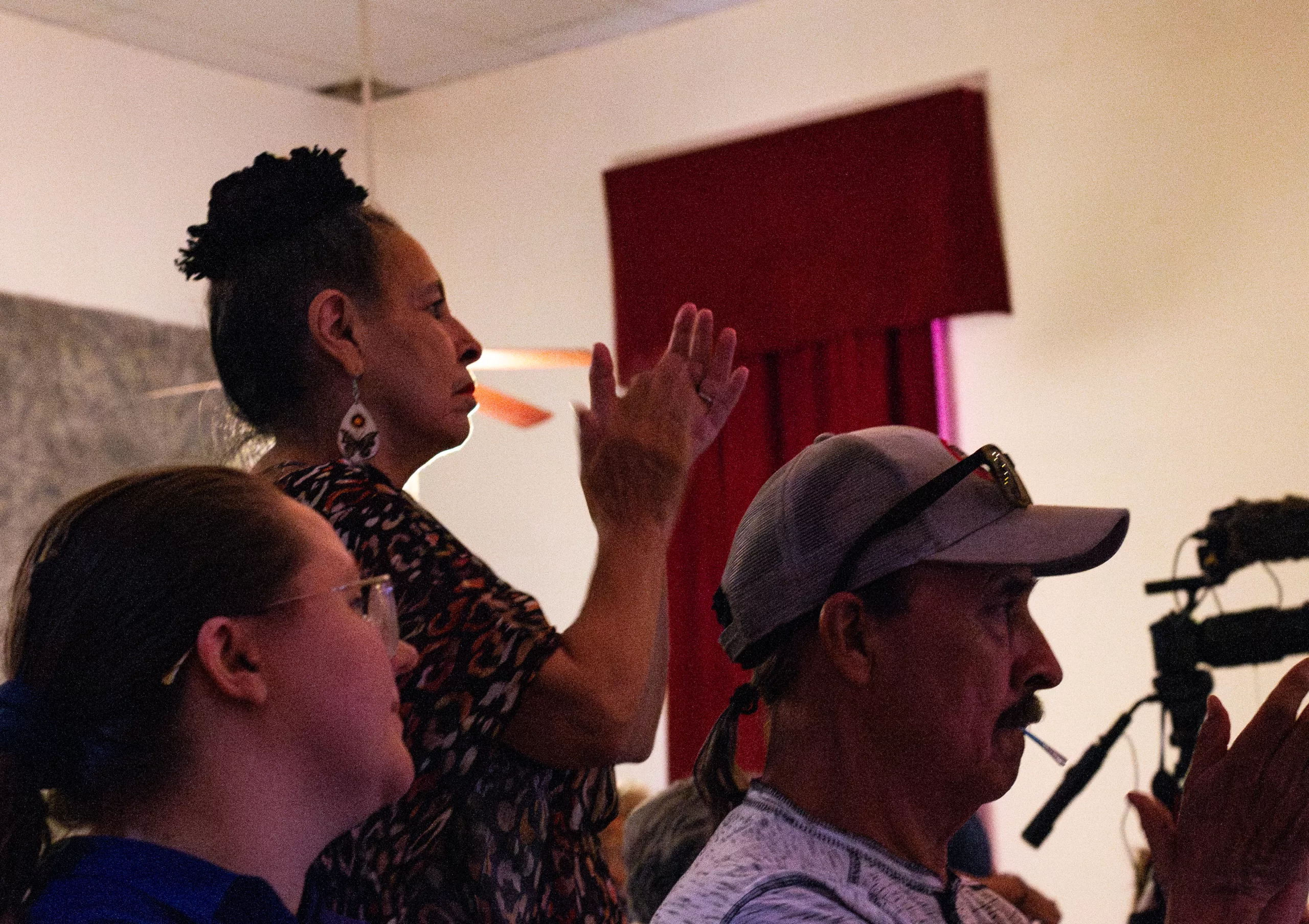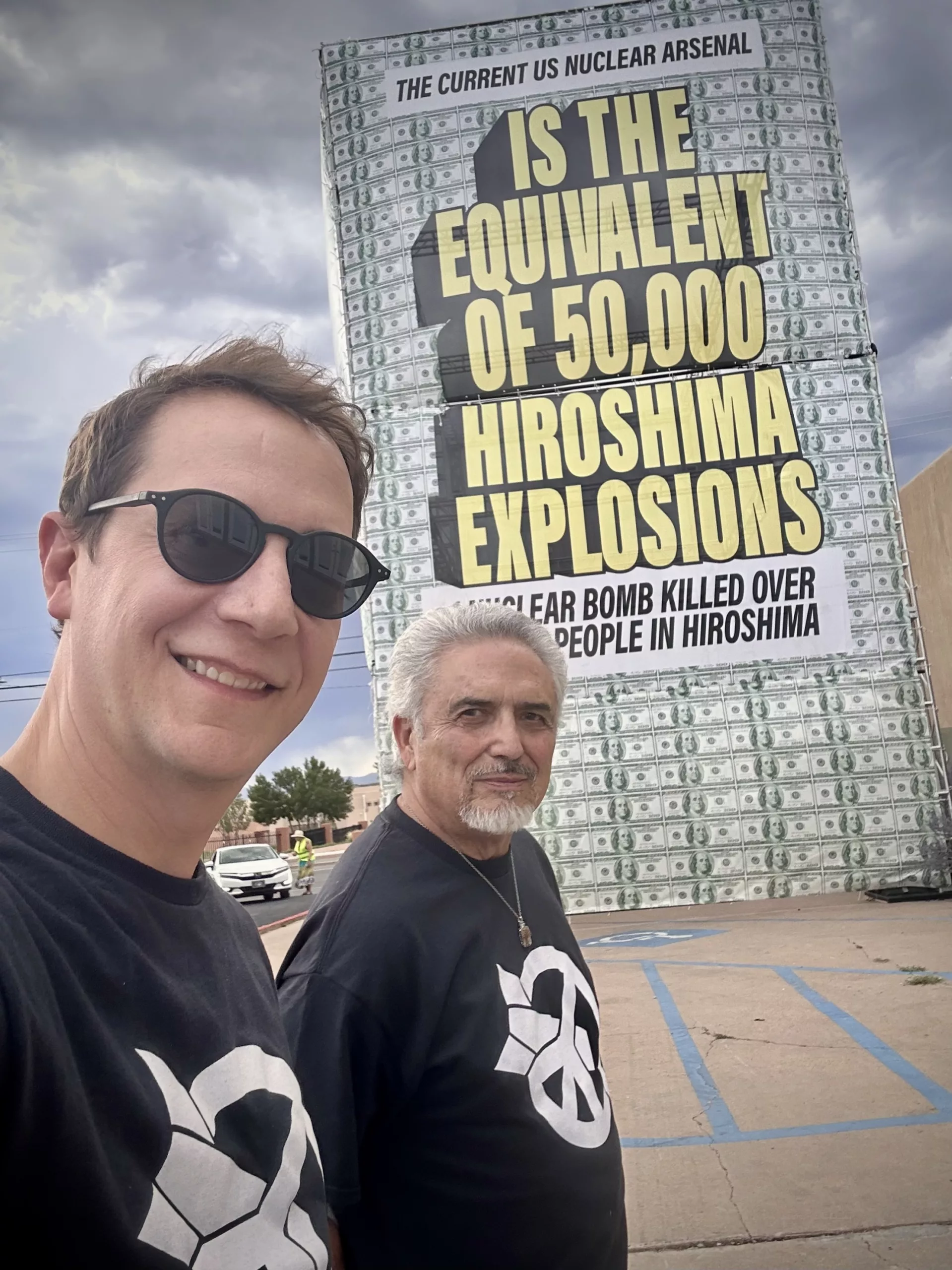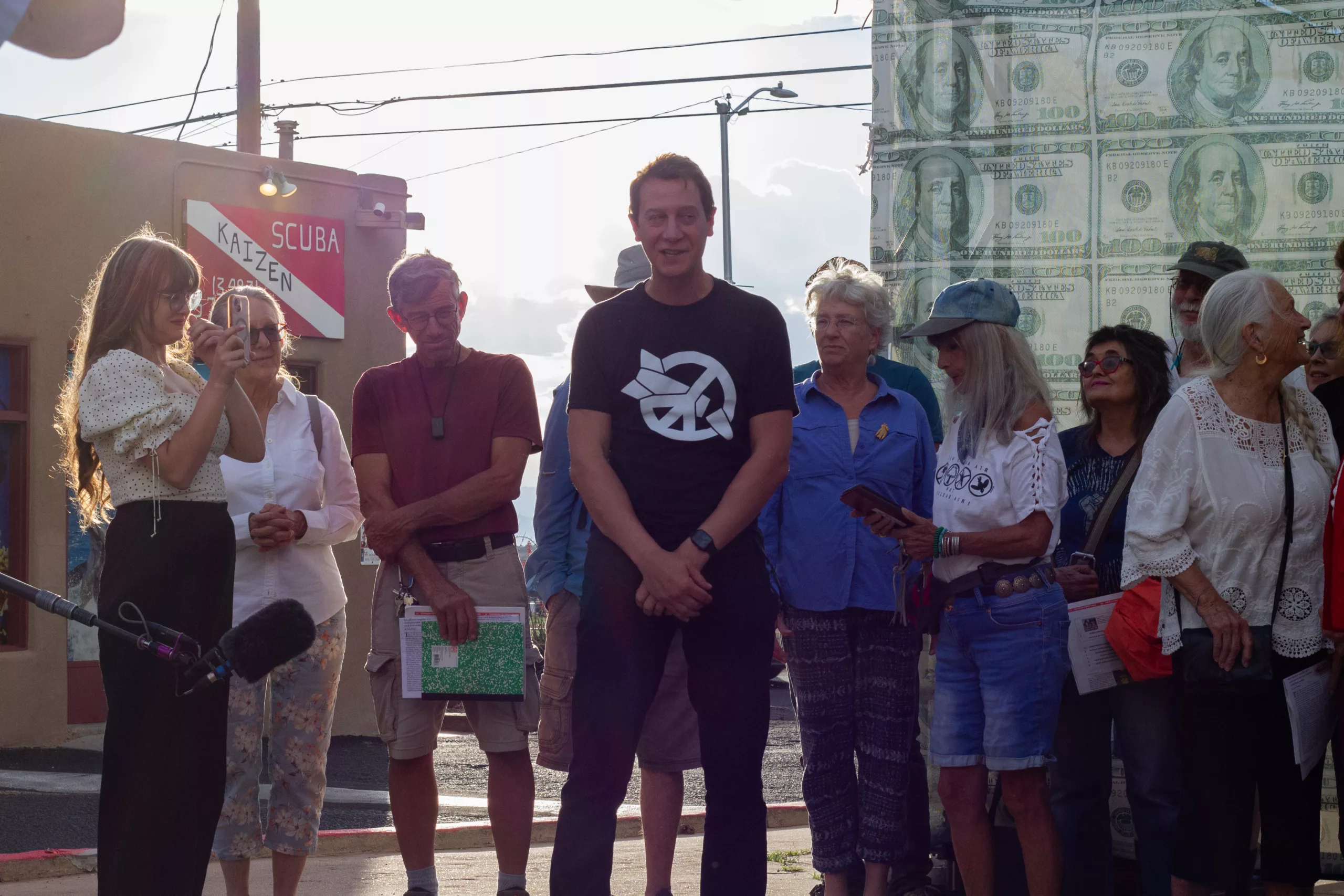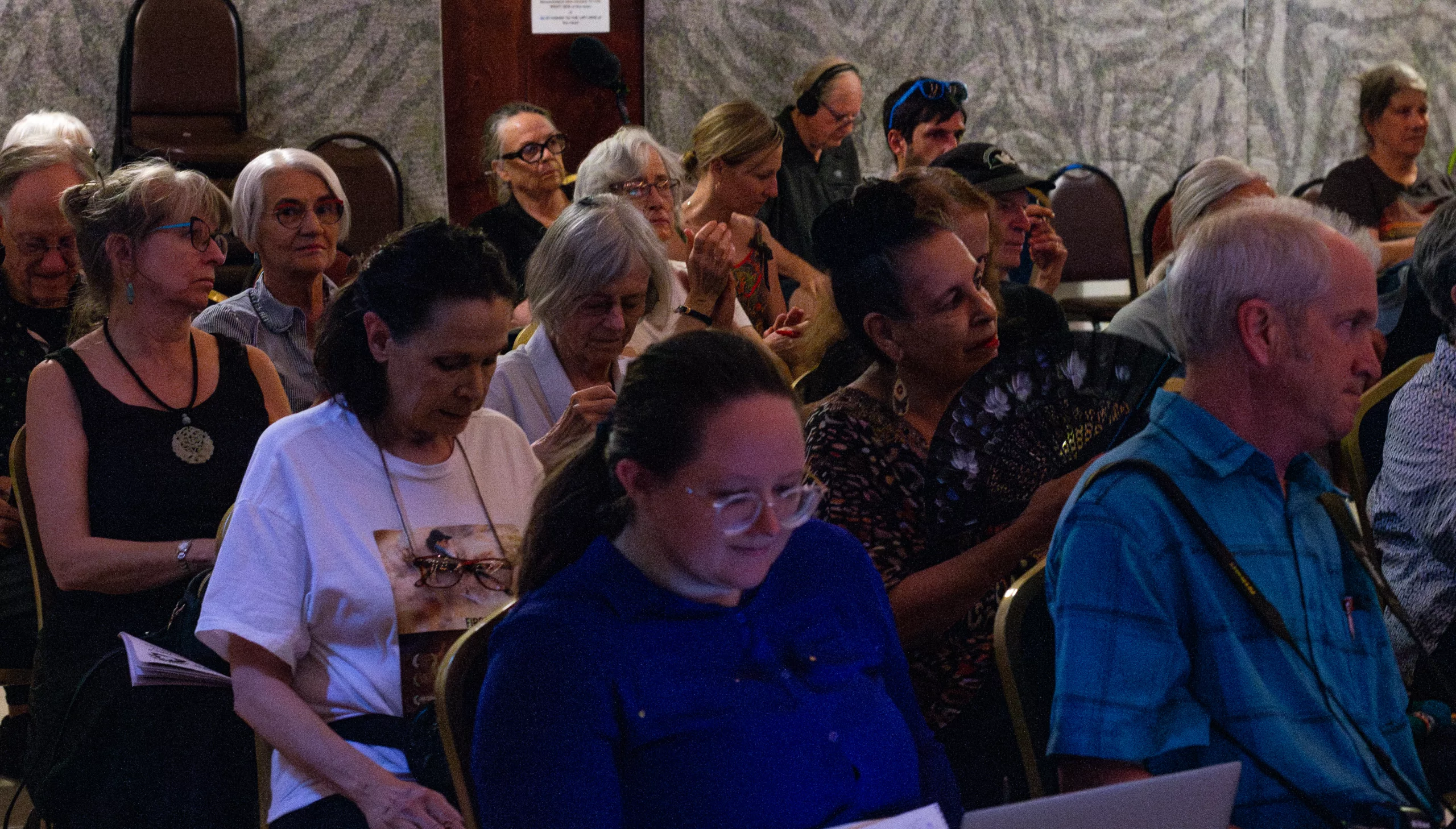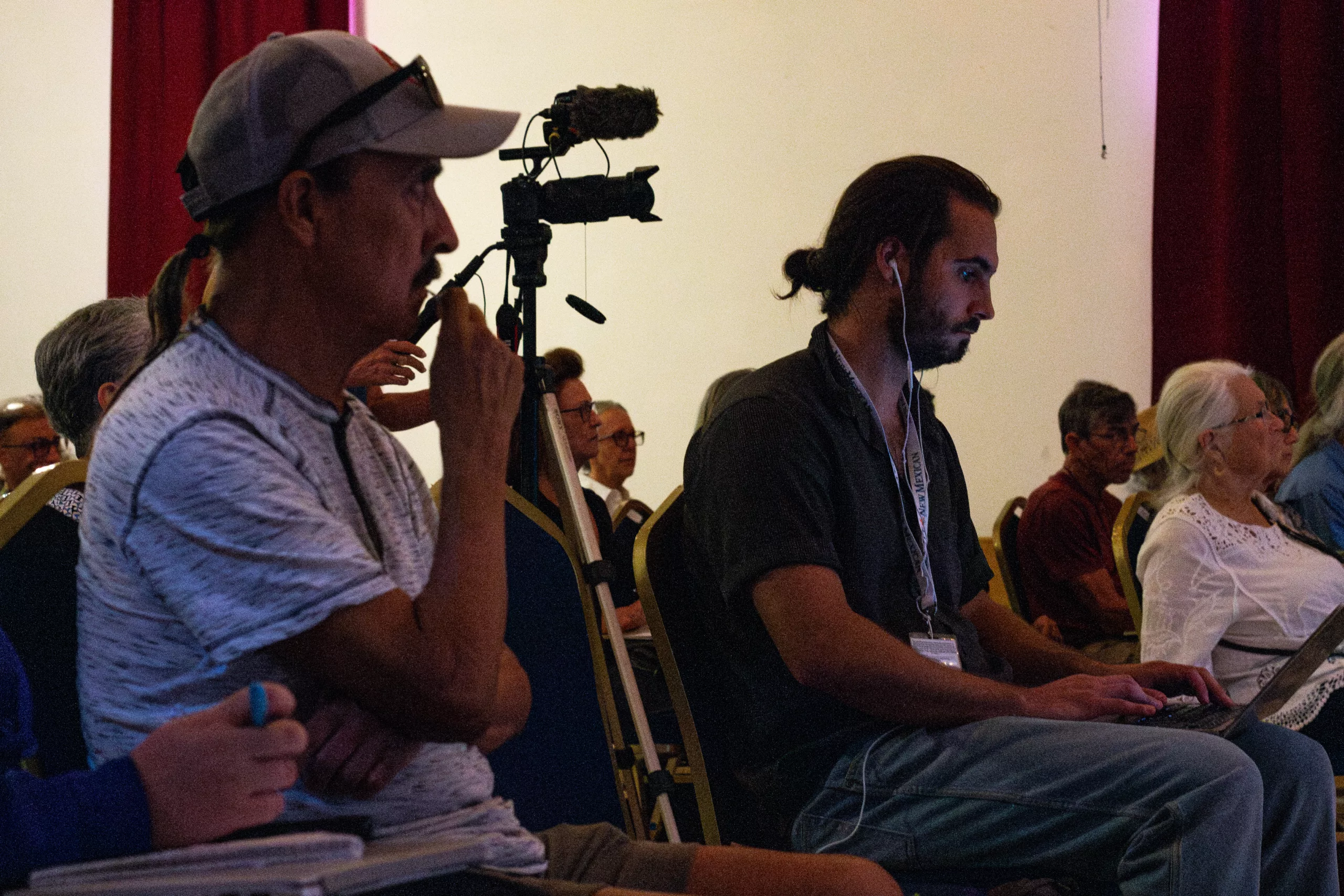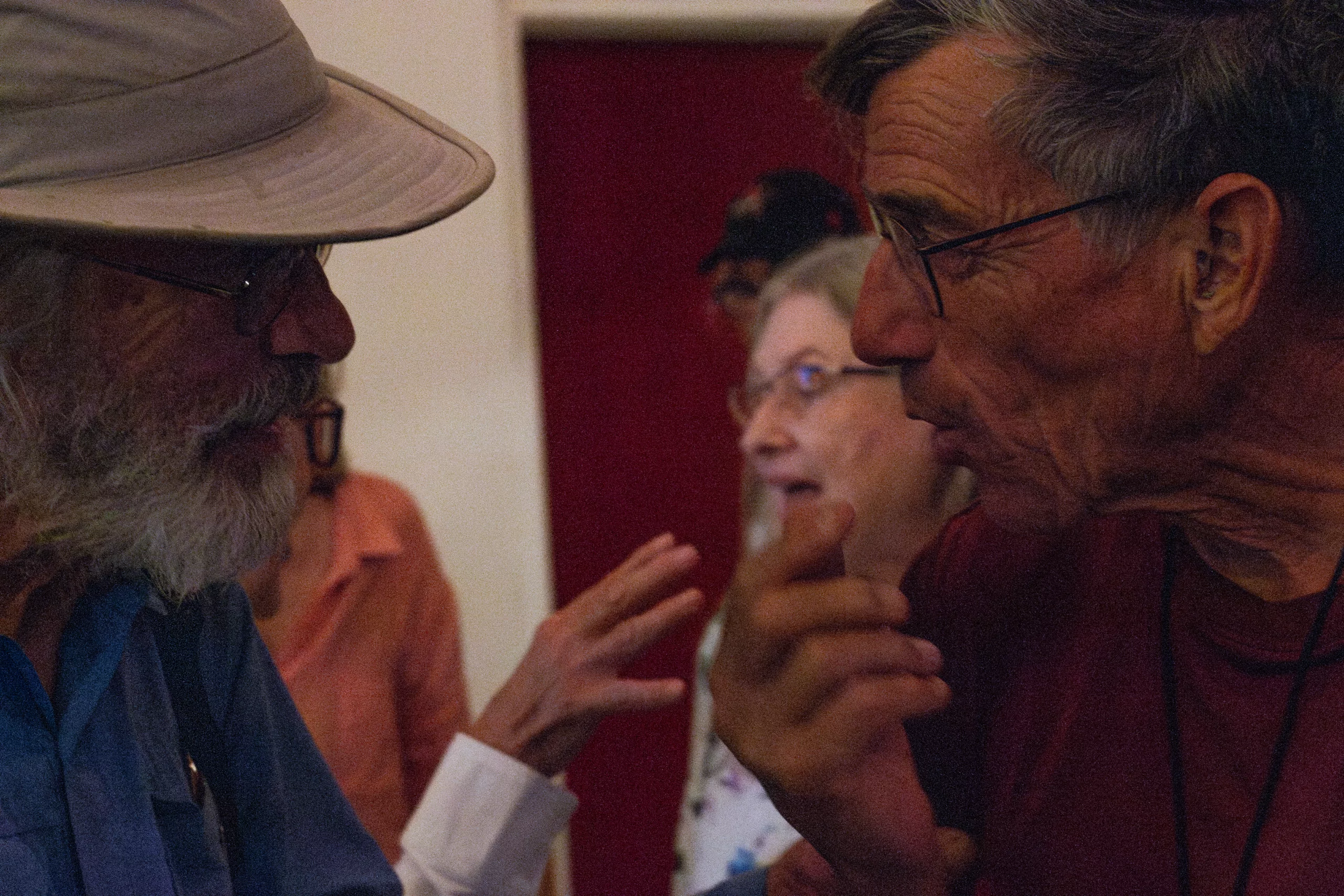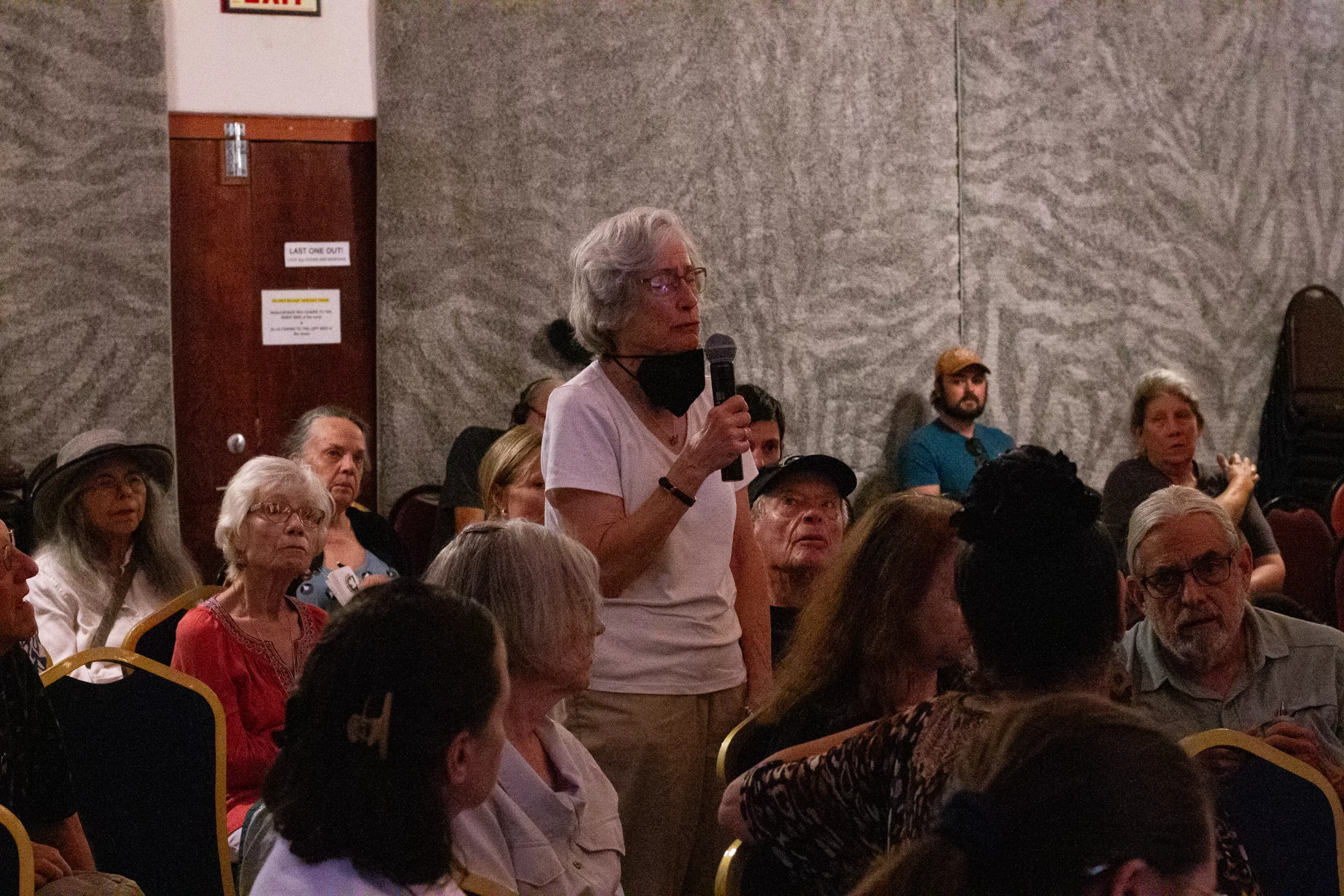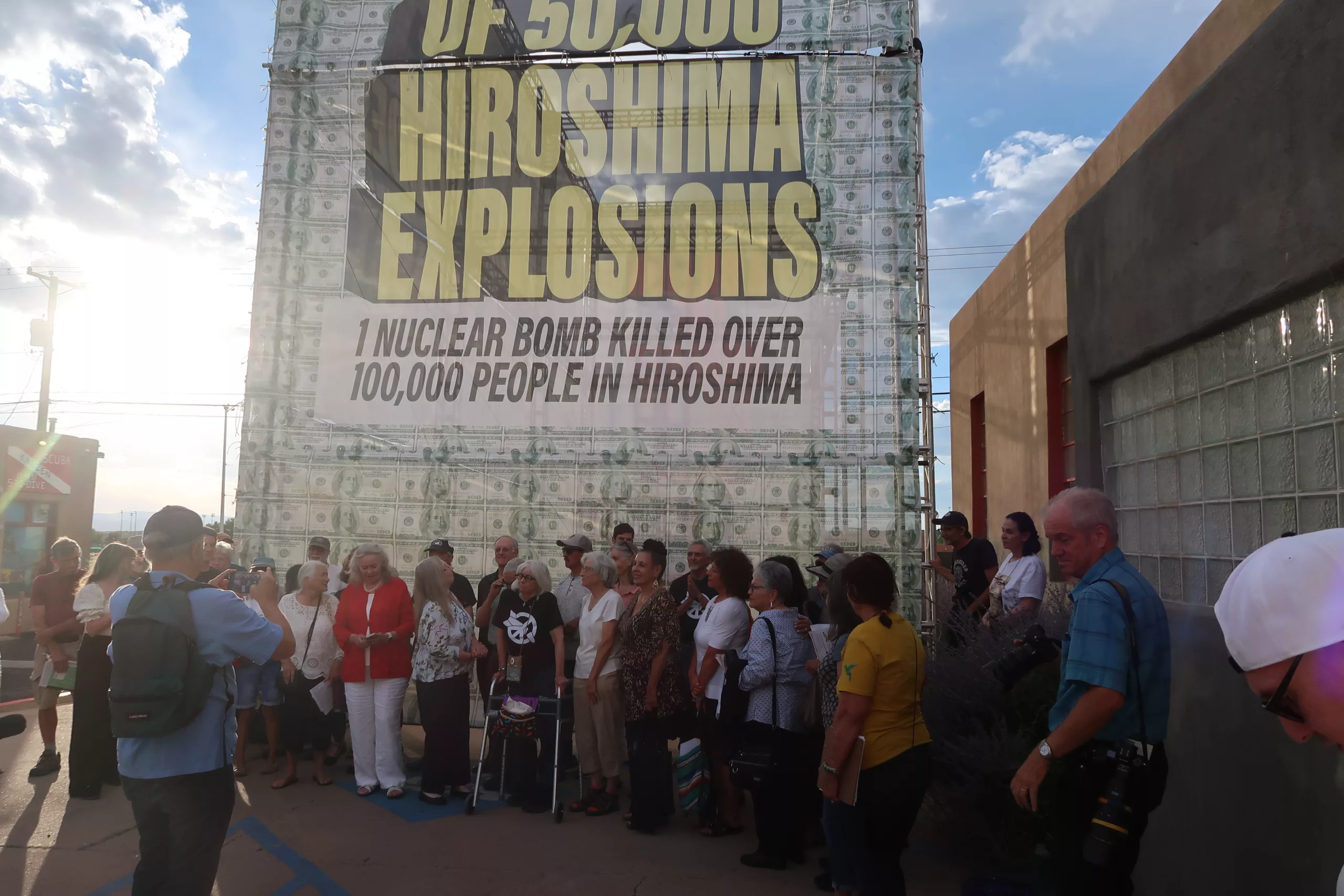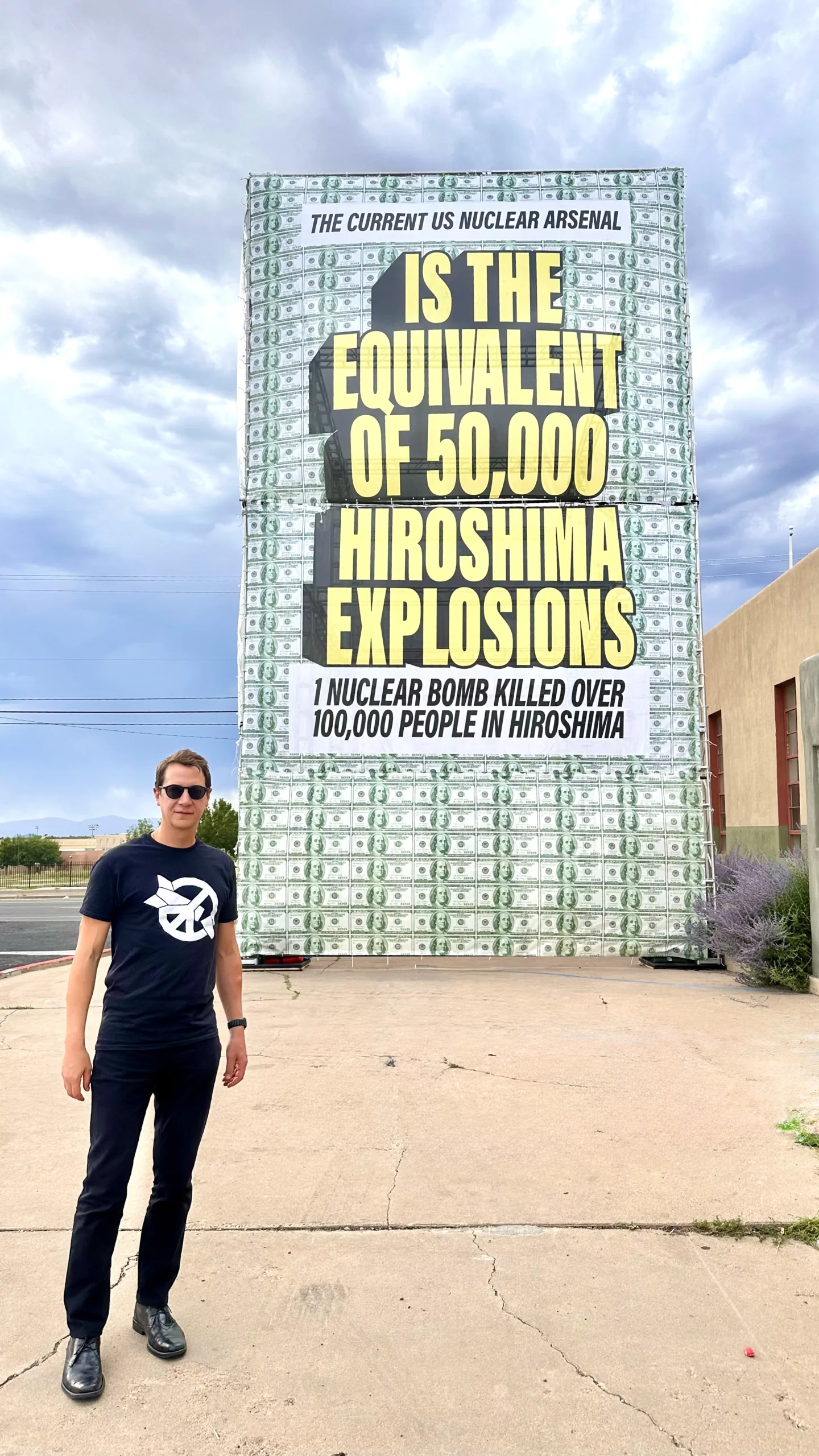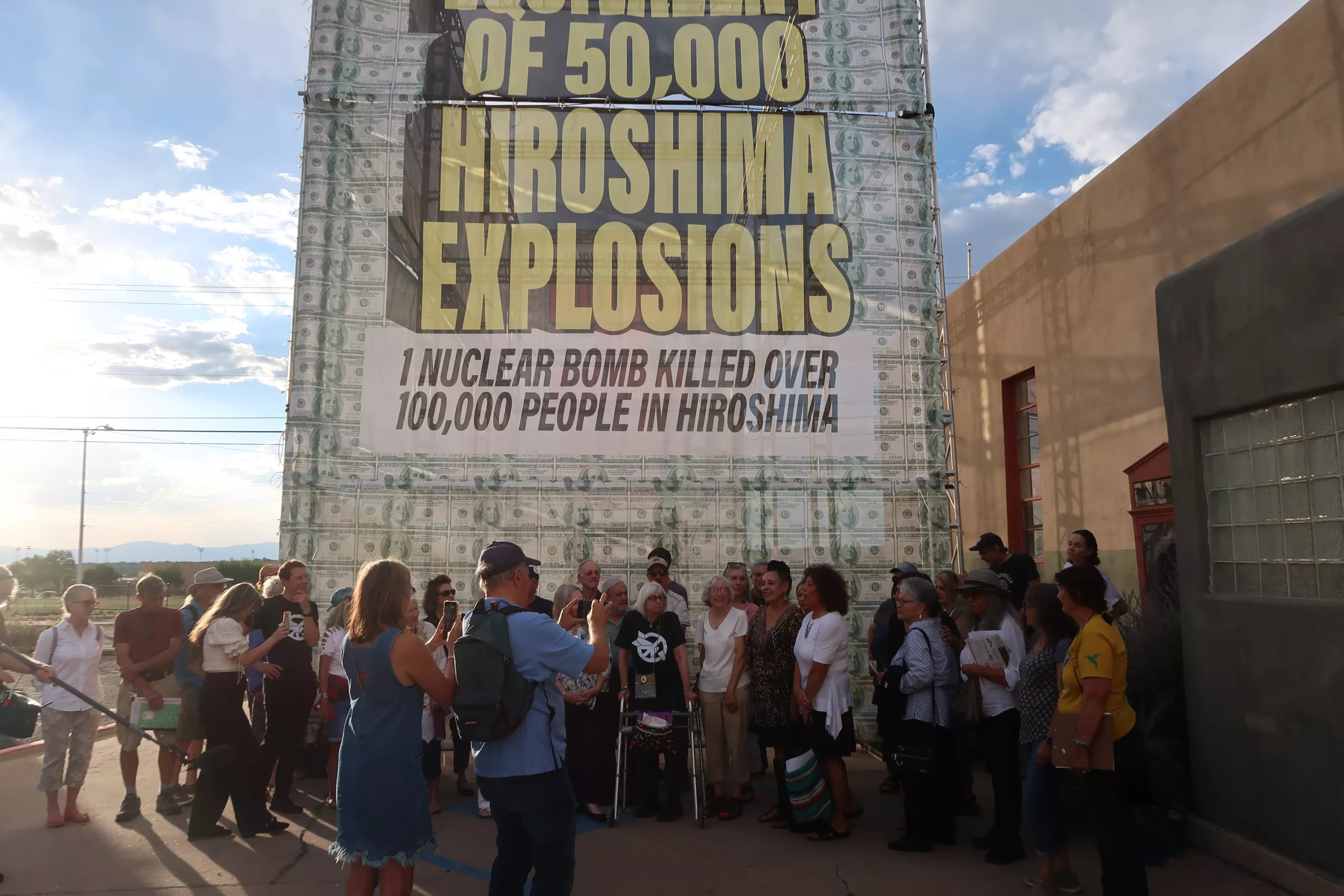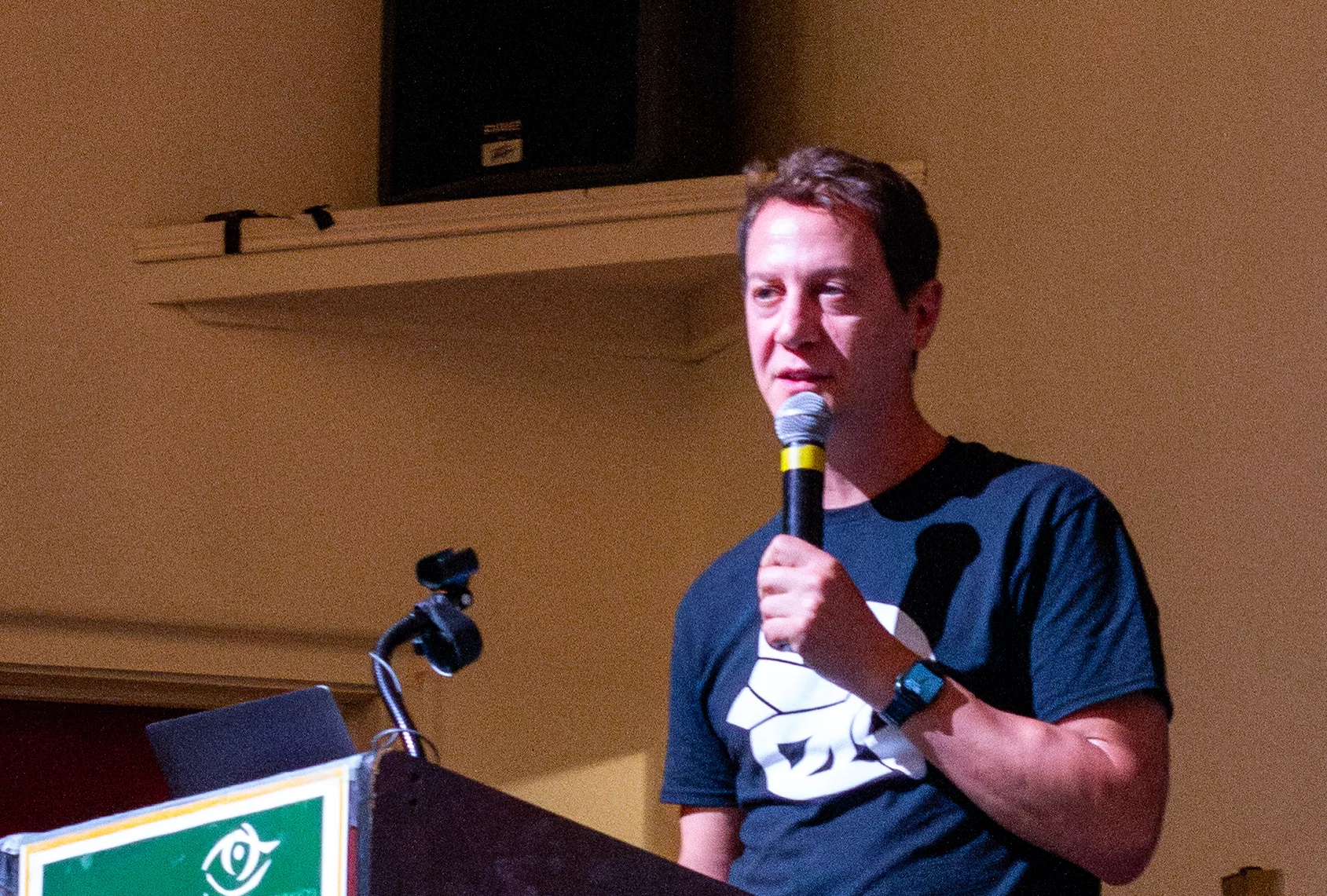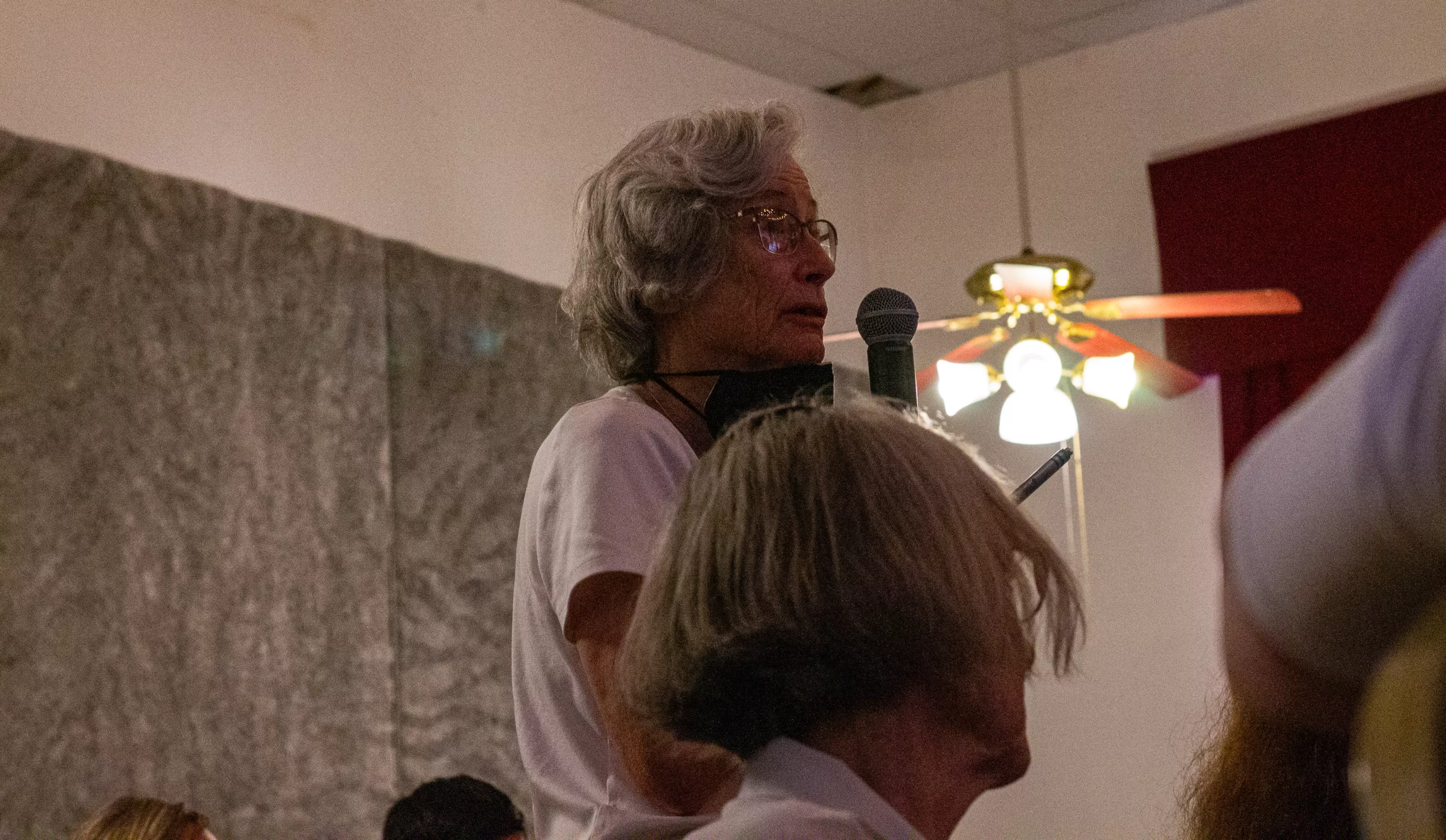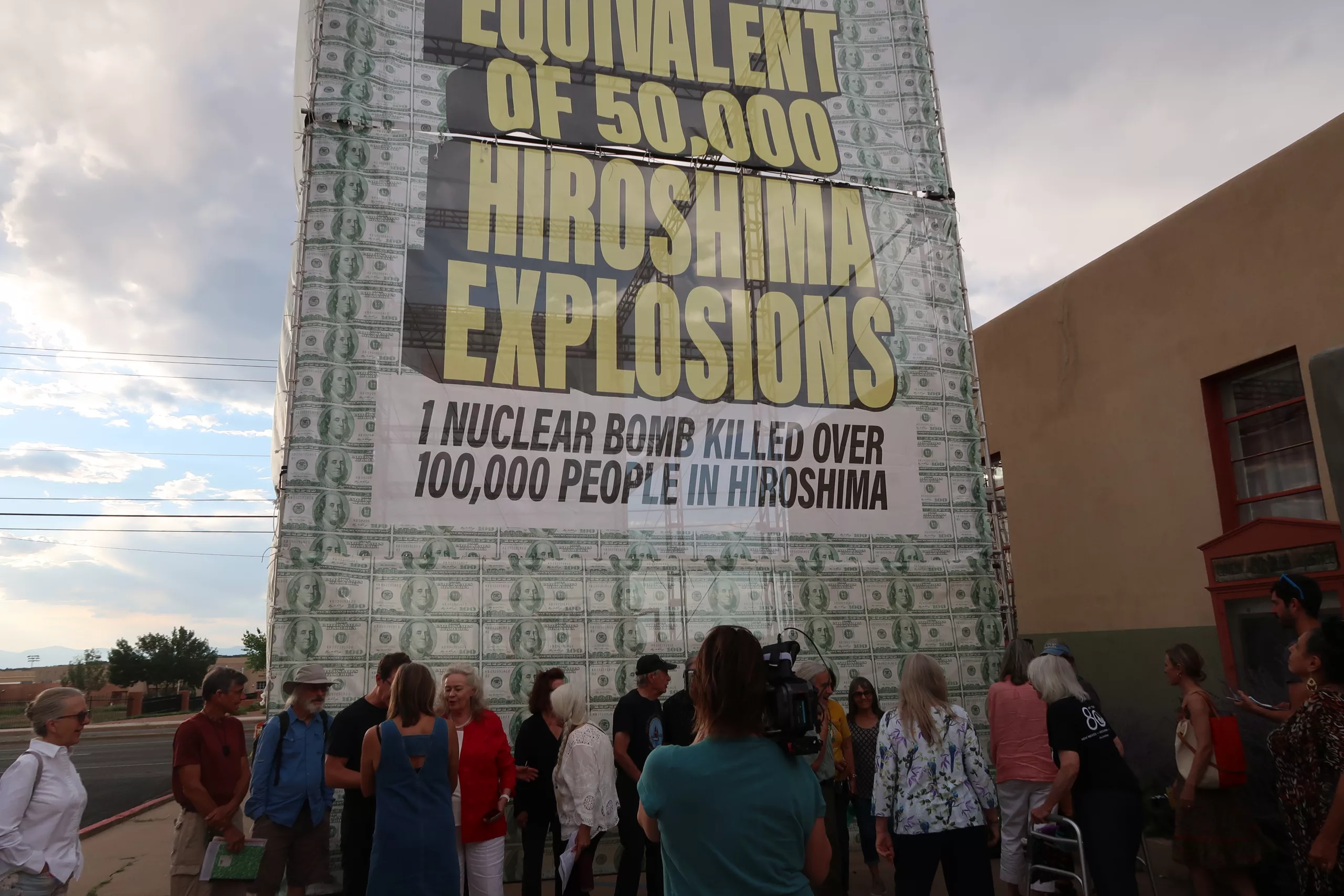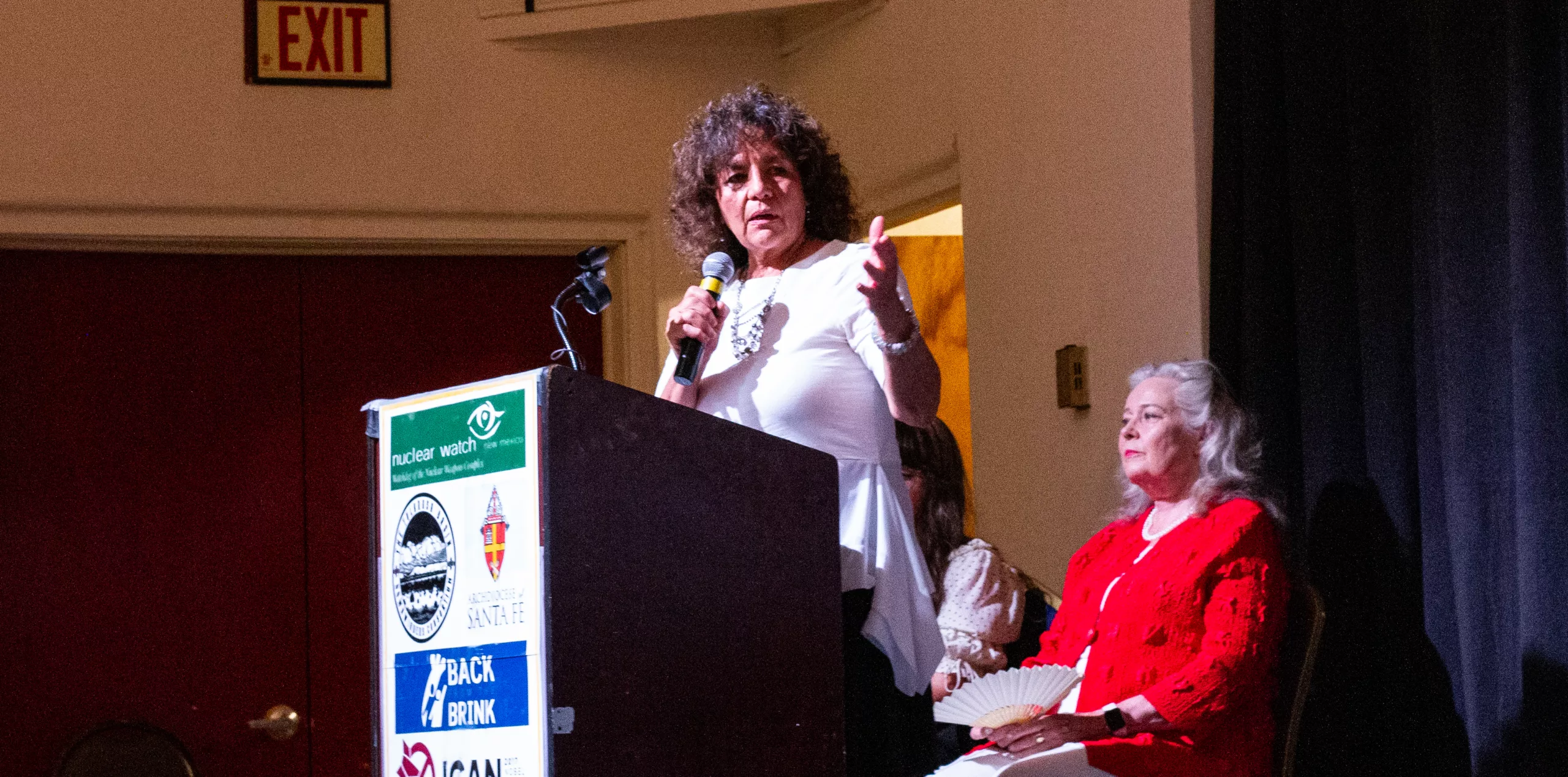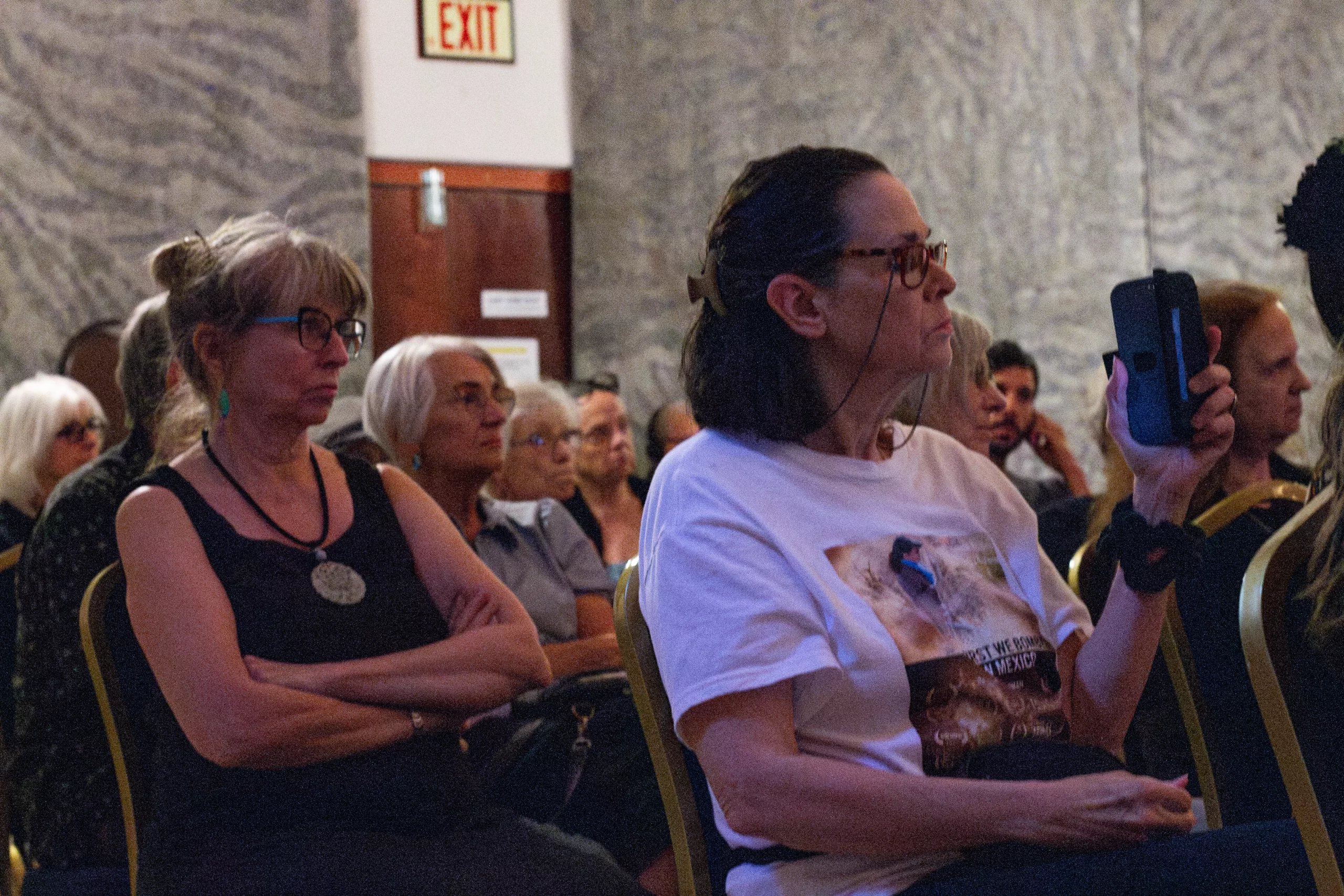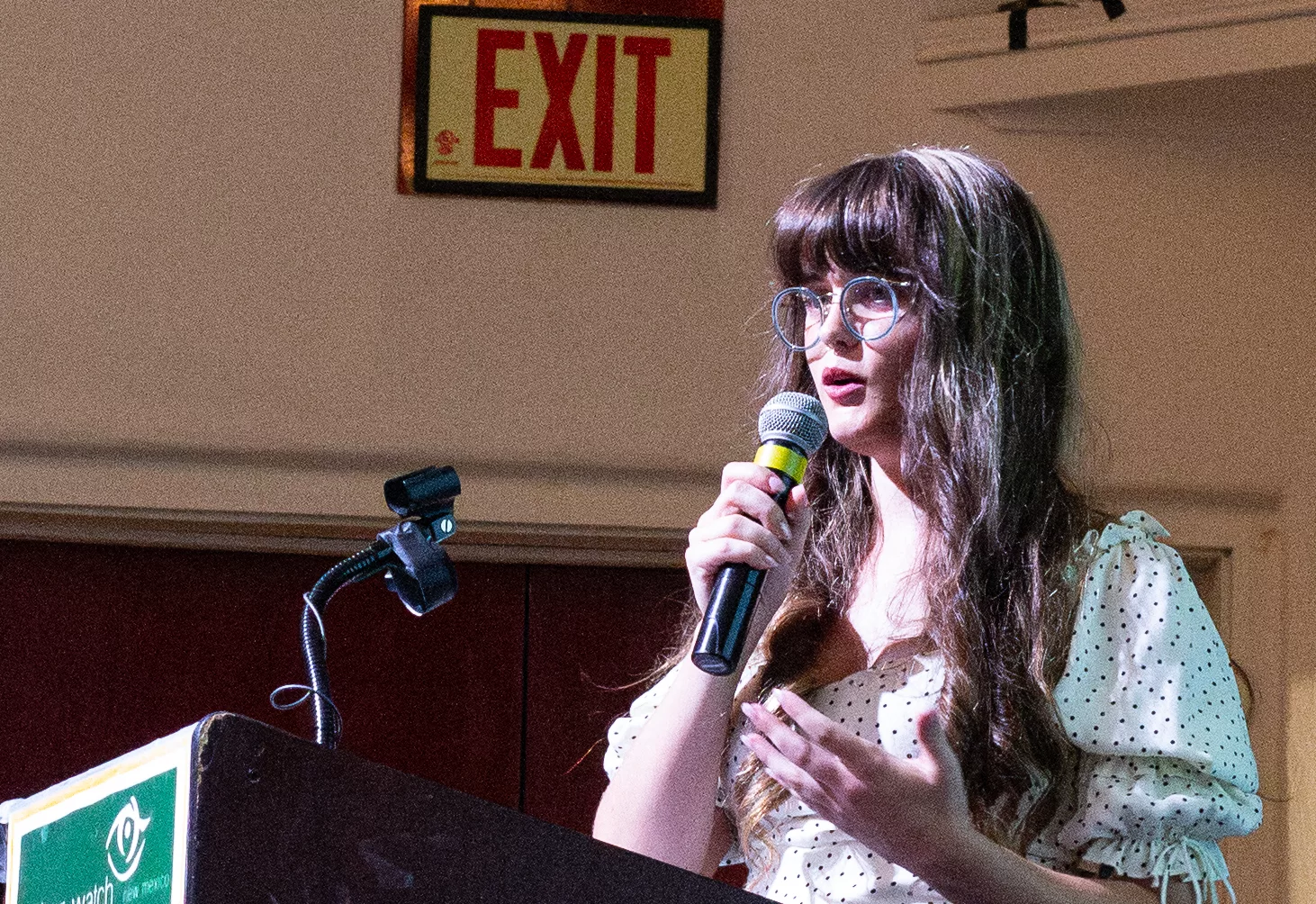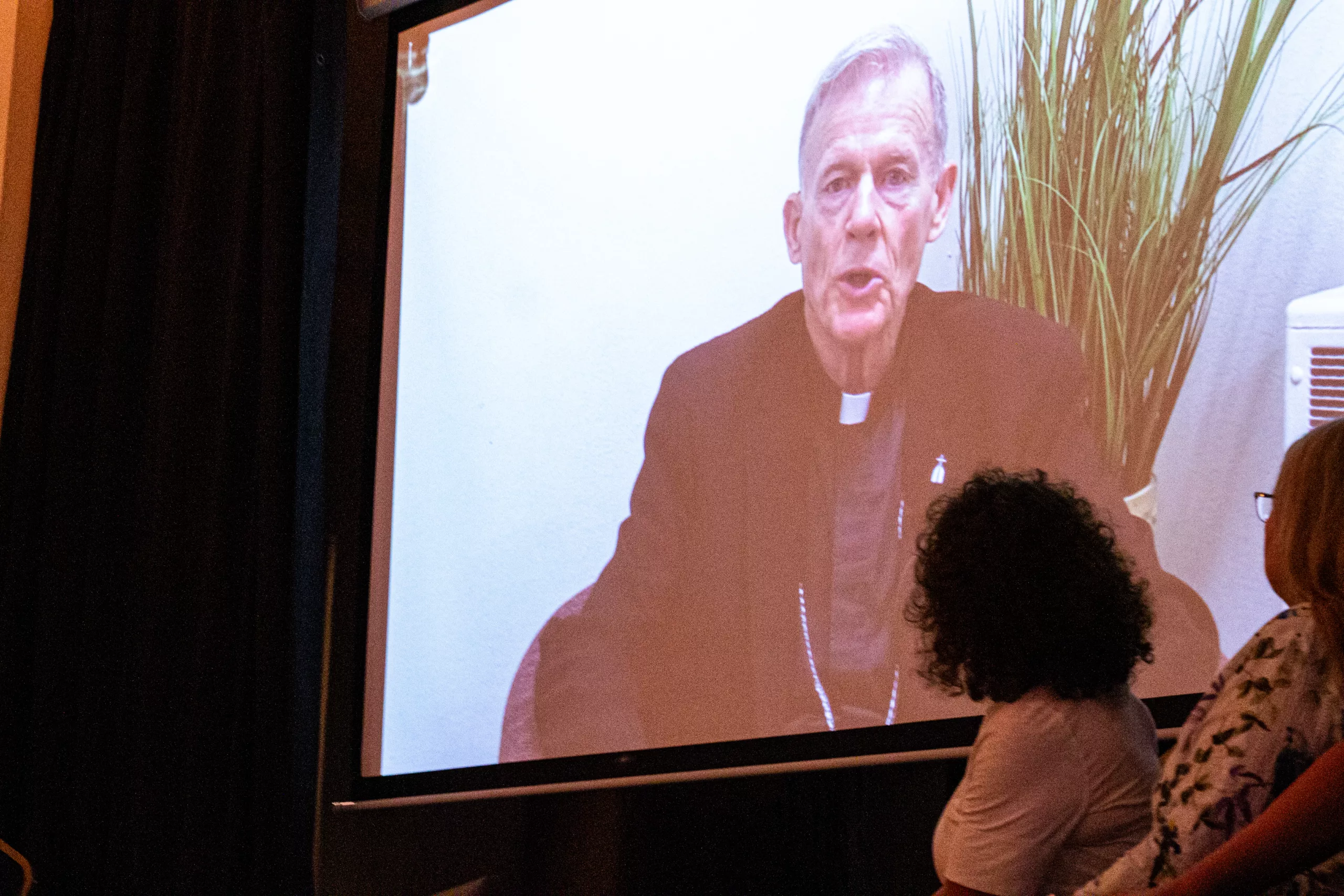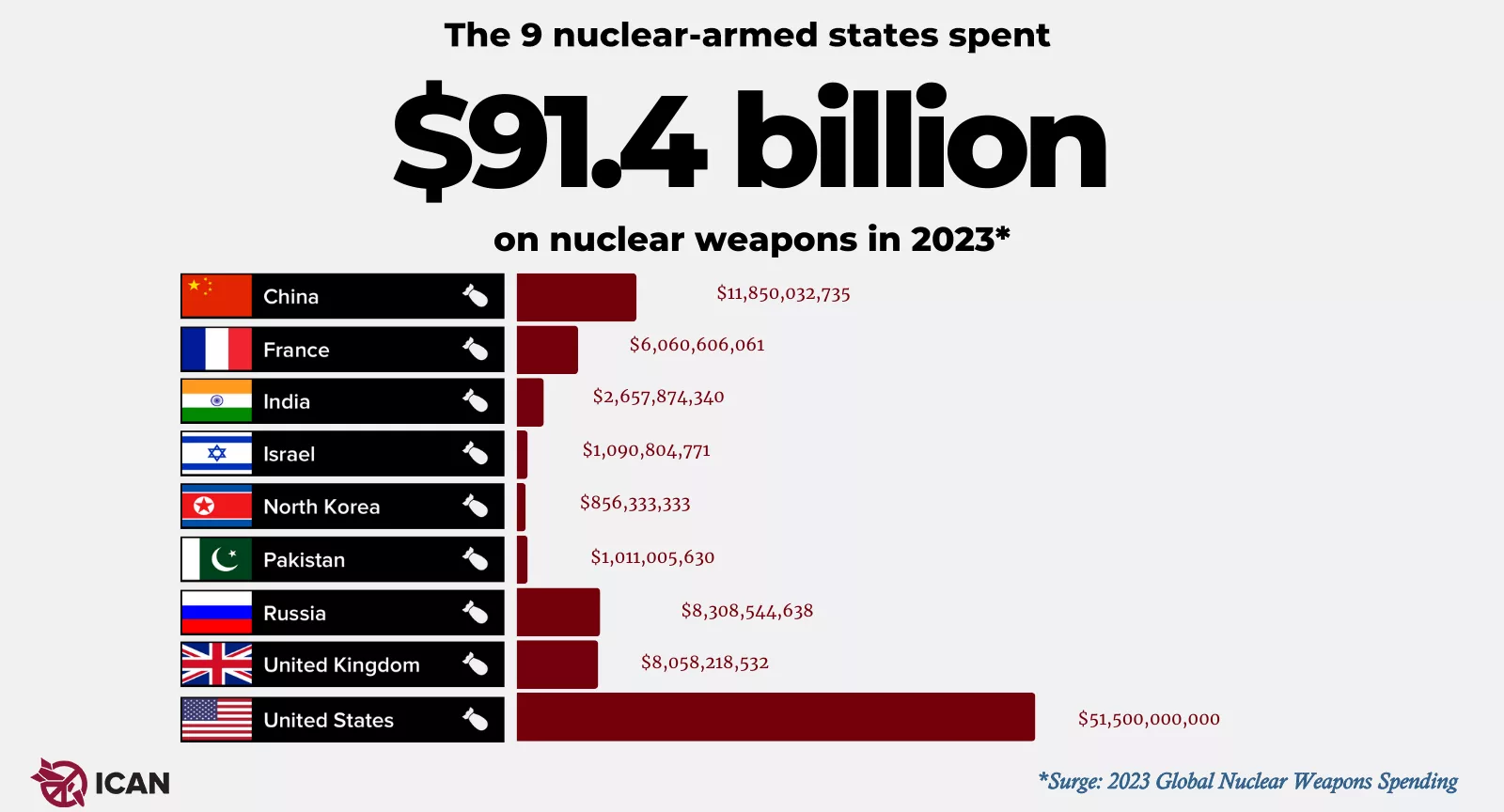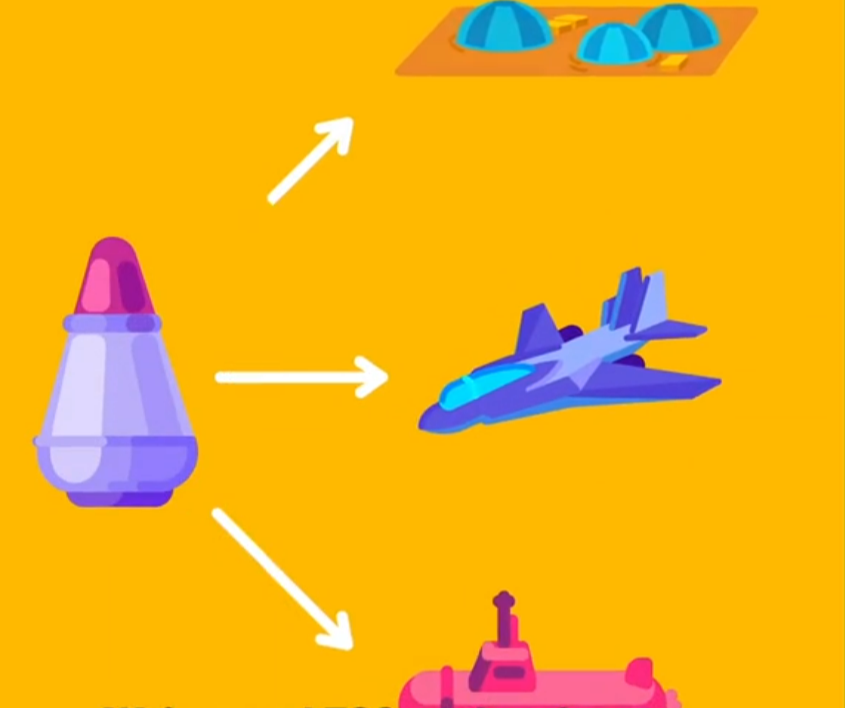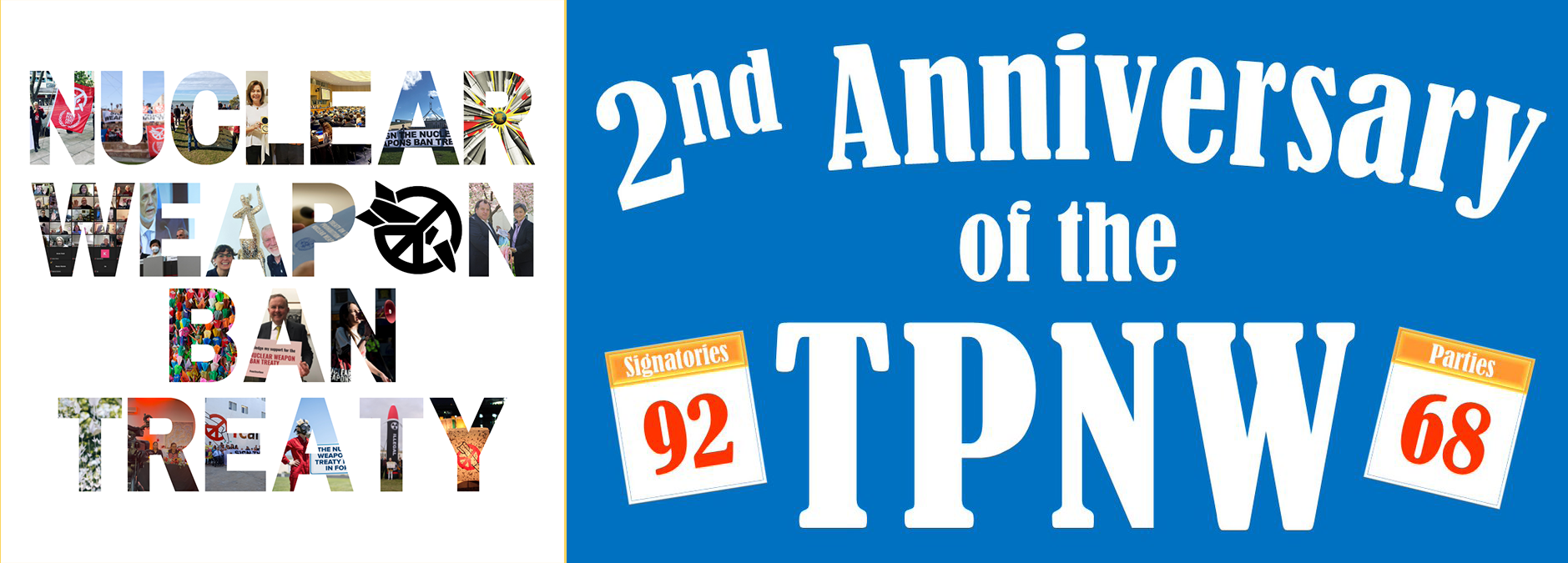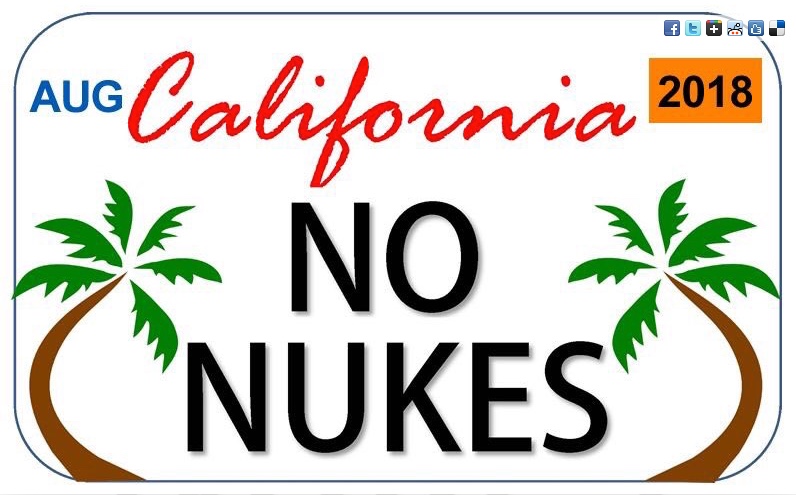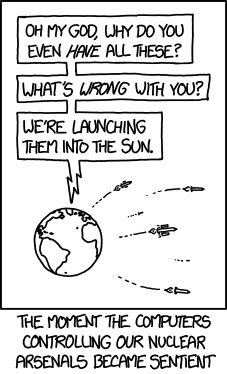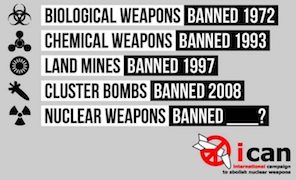Overview
The U.N. Treaty
on the Prohibition of Nuclear Weapons
On 7 July 2017 – following a decade of advocacy by ICAN and its partners – an overwhelming majority of the world’s nations adopted a landmark global agreement to ban nuclear weapons, known officially as the Treaty on the Prohibition of Nuclear Weapons. It will enter into legal force once 50 nations have signed and ratified it.
Prior to the treaty’s adoption, nuclear weapons were the only weapons of mass destruction not subject to a comprehensive ban, despite their catastrophic, widespread and persistent humanitarian and environmental consequences. The new agreement fills a significant gap in international law.
It prohibits nations from developing, testing, producing, manufacturing, transferring, possessing, stockpiling, using or threatening to use nuclear weapons, or allowing nuclear weapons to be stationed on their territory. It also prohibits them from assisting, encouraging or inducing anyone to engage in any of these activities.
A nation that possesses nuclear weapons may join the treaty, so long as it agrees to destroy them in accordance with a legally binding, time-bound plan. Similarly, a nation that hosts another nation’s nuclear weapons on its territory may join, so long as it agrees to remove them by a specified deadline.
Nations are obliged to provide assistance to all victims of the use and testing of nuclear weapons and to take measures for the remediation of contaminated environments. The preamble acknowledges the harm suffered as a result of nuclear weapons, including the disproportionate impact on women and girls, and on indigenous peoples around the world.
The treaty was negotiated at the United Nations headquarters in New York in March, June and July 2017, with the participation of more than 135 nations, as well as members of civil society. It opened for signature on 20 September 2017. It is permanent in nature and will be legally binding on those nations that join it.
Why a ban?
Nuclear weapons are the most inhumane and indiscriminate weapons ever created. That is why it is time to end them, before they end us.
Nuclear weapons are the most inhumane and indiscriminate weapons ever created. They have catastrophic humanitarian and environmental consequences that span decades and cross generations; they breed fear and mistrust among nations, as some governments can threaten to wipe out entire cities in a heartbeat; the high cost of their production, maintenance and modernisation diverts public funds from health care, education, disaster relief and other vital services. Banning these immoral, inhumane weapons under international law was a critical step along the path to ending them.
With the adoption of the UN Treaty on the Prohibition of Nuclear Weapons (TPNW) on July 7th, 2017, the world's majority took a critical step towards making that nuclear-weapon-free future a reality.
August 6th U.S. Atomic Bombing of Hiroshima Commemoration in Santa Fe
Eighty Years Later, it is Beyond Time to Get Rid of Nuclear Weapons.
Last week on August 6, 2025, the 80th anniversary of the U.S. atomic bombing of Hiroshima, community members gathered at the Center for Progress and Justice on Cerrillos Road in Santa Fe to honor the solemn occasion and demand an end to the ongoing nuclear weapons harm and destruction that first began here in New Mexico.
The event was organized by Nuclear Watch New Mexico in collaboration with the Up in Arms campaign by Ben Cohen, co-founder of Ben & Jerry's, to reduce military and nuclear weapons spending, the International Campaign to Abolish Nuclear Weapons (winners of the 2017 Nobel Peace Prize), the Santa Fe Archdiocese, the Back from the Brink New Mexico Hub, and the Tularosa Basin Downwinders Consortium. It centered around a massive public art installation from Up in Arms of a towering cubic structure framed by messages on top of images of $100 bills. The structure is sized to literally hold $100 billion of those bills, respresenting what the U.S. spends every year on nuclear weapons (the total cost of nuclear weapons "modernization" is up to $2 trillion). Visible to thousands of drivers each day, the large installation pressures viewers to reckon with the scale of this cost and to imagine what else those resources could make possible. A prominent message on one of the four sides quotes the president in saying, "'We don't need to build brand new ones. We already have so many,' — Donald Trump" and below it, "His budget includes a down payment of $2 trillion of nuclear weapons." Another side reads, "The current U.S. nuclear arsenal is the equivalent of 50,00 Hiroshima explosions. One nuclear bomb killed over 100,000 people in Hiroshima."
The installation will remain on display for the foreseeable future, GO SEE IT NOW! 1420 Cerrillos Road, Santa Fe, NM 87505.
During the event, speakers Archbishop John C. Wester (by video from Japan), Tina Cordova of the Tularosa Basin Downwinders, Sophie Stroud from Nuclear Watch New Mexico, Anne Pierce-Jones from Back from the Brink, Ben Cohen representing Up in Arms, and Seth Shelden from ICAN all gave concrete steps and actions that concerned citizens can take to help promote a safer world. The speakers were presented by former Santa Fe County Commissioner Anna Hansen, who stated, “Disarmament is the only answer. I have spent my life working to end the nuclear cycle, as many have, and most of us in this room have never known a world without nuclear weapons.”
Speakers drew connections between the devastation in Hiroshima and the continued production of plutonium pits at LANL. At Los Alamos National Lab alone, five billion dollars will be poured into nuclear weapons programs in Fiscal Year 2026, starting this October. One billion dollars was added to last year’s budget, which includes a 42% increase for nuclear warheads. At the same time, nonproliferation programs are being cut, the science budget sliced in half, and funds for renewable energy zeroed out and gone completely. The push for "modernization" of the US’s nuclear arsenal is directly linked to plutonium pit production at Los Alamos, specifically expanding plutonium pit production. LANL will receive $1.7 billion in direct costs for pit production in 2026. Add in the indirect costs, and it’s roughly double that. All of this future pit production is exorbitantly expensive, yet the National Nuclear Security Administration still has no credible cost estimate for these plans.
WHAT YOU NEED TO KNOW: New plutonium pits are not needed to maintain the existing stockpile - it is all for future, new designs. And these new weapons cannot be tested because of the testing moratorium - or conversely could pressure the US to resume testing. In 2006, independent experts concluded that existing plutonium pits last at least a century. Their average age now is about 43 years. A new pit aging study is expected this year. Expansion plans should stop until then.
The U.S.’s $2 trillion “modernization” program is a plan to keep nuclear weapons forever. It is claimed to be essential for “deterrence.” But deterrence relies upon the flawed assumption that all actors will behave rationally, and that accidents or miscalculations will never occur. History says otherwise. Moreover, the U.S. and Russia have always rejected minimal deterrence in favor of nuclear warfighting capabilities that could end civilization overnight. That is why we have 1,000s of nuclear weapons and are funneling billions of dollars into mass death machines, even though everybody knows that a nuclear war must never be fought and can never be won.
See more on the myth of deterrance here:
Deterrence is the Threat: NukeWatch Presentation for Western New Mexico University – April 1, 2025
Media coverage of the event includes the Santa Fe New Mexican articles below:
New Mexico reckons with its role in Japan’s atomic devastation on 80th anniversary of Hiroshima
‘End the nuclear cycle’: Antinuclear New Mexicans speak out 80 years after Hiroshima bombing
View the full event recording - Click HERE or below:
Nuclear Watch New Mexico and Santa Fe Archbishop John C. Wester Attend the Third Meeting of States Parties to the Treaty on the Prohibition of Nuclear Weapons
We had the honor of joining the Archbishop of Santa Fe, John Wester, in attending the third Meeting of States Parties to the Treaty on the Prohibition of Nuclear Weapons last week, March 3-7 in New York City. The archbishop gave mass to several different groups (see photos below) and spoke at the UN headquarters as part of Civil Society.
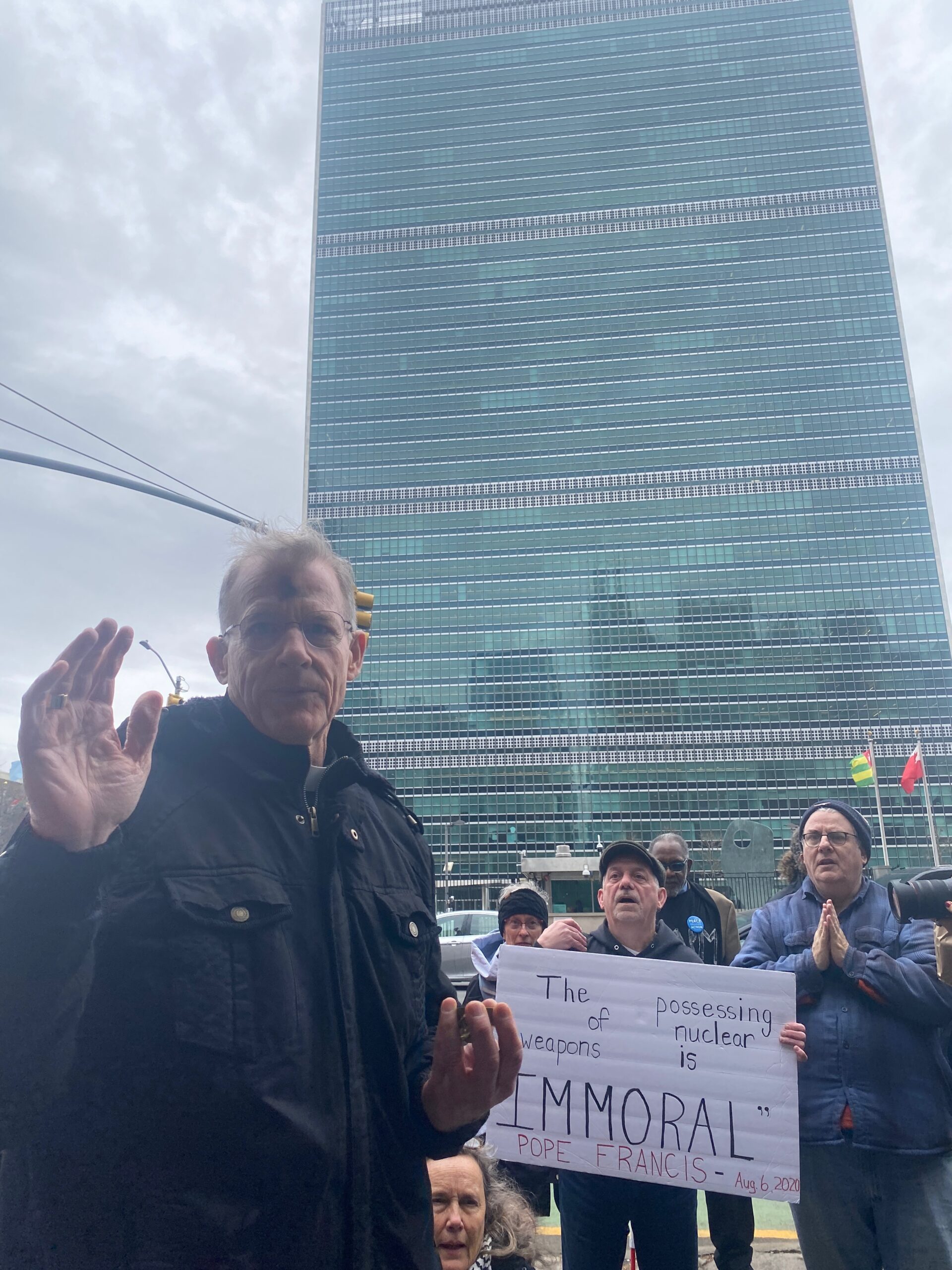
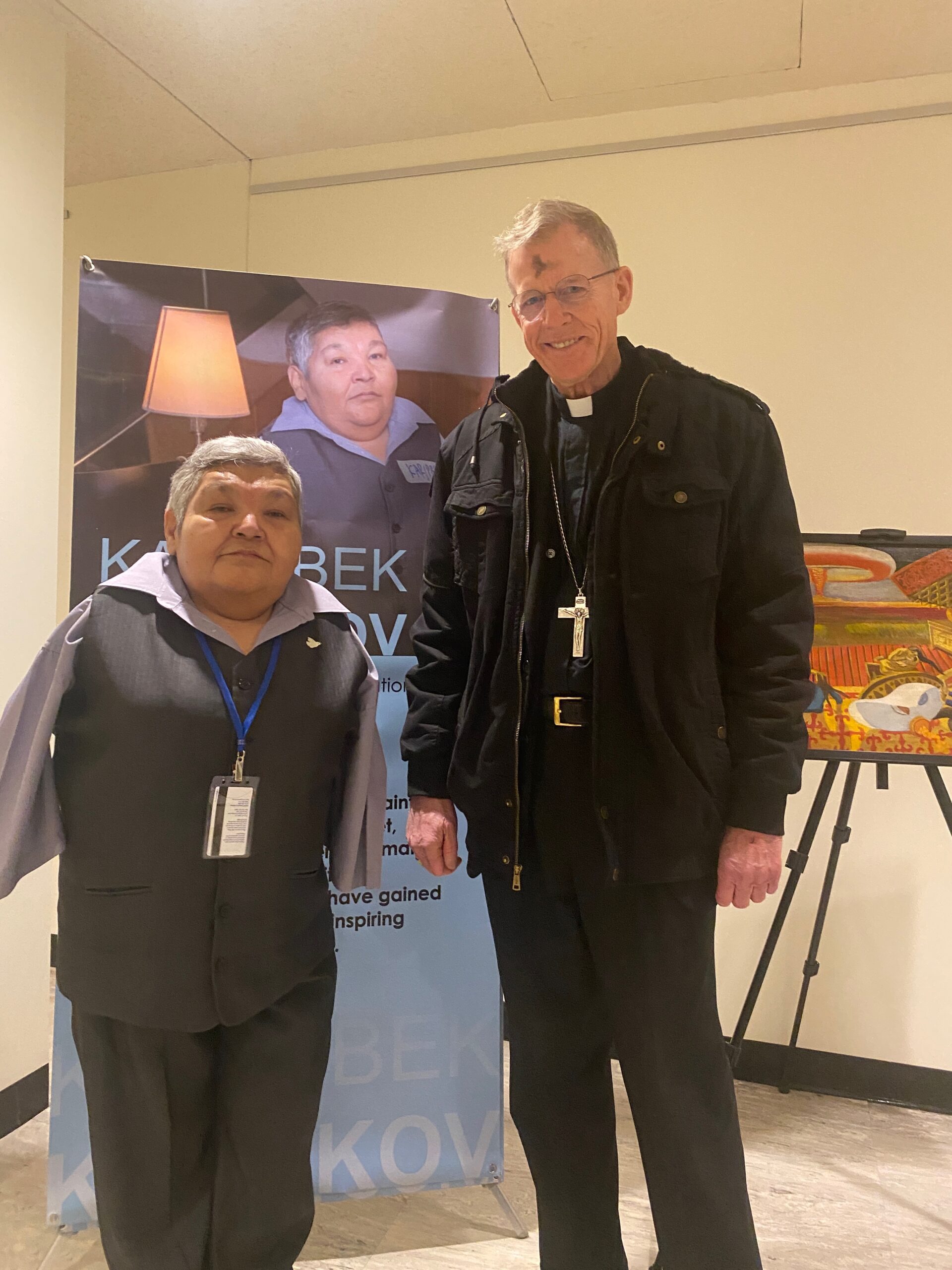
In New York City this week? Join Pax Christi members and friends at Mass with Archbishop John Wester (Santa Fe NM) on Tuesday, March 4, 6 pm, at the Church of Our Saviour, 59 Park Avenue at 38th Street. Use this link to RSVP. #TPNW #3MSP #nucleardisarmamentwww.dorothydayguild.org/WesterMass25
— Pax Christi USA (@paxchristiusa.bsky.social) 2025-03-03T16:35:50.942Z
ICAN: Global nuclear weapons spending surges to $91.4 billion
In 2023, the nine nuclear-armed states spent a combined total of $91,393,404,739 on their arsenals – equivalent to $2,898 a second. ICAN’s latest report “Surge: 2023 Global nuclear weapons spending” shows $10.7 billion more was spent on nuclear weapons in 2023 than in 2022.
Read the report
Download the Executive Summary
International Campaign to Abolish Nuclear Weapons (ICAN) | June 17, 2024 icanw.org
Who spent what on their nuclear arsenal in 2023?
In 2023 China, France, India, Israel, North Korea, Pakistan, Russia, the UK and US spent a combined $91.4 billion on their nuclear arms, which breaks down to $173,884 per minute, or $2,898 a second. The United States’ share of total spending, $51.5 billion, is more than all the other nuclear-armed countries put together and accounts for 80% of the increase in nuclear weapons spending in 2023. The next biggest spender was China which expended $11.8 billion with Russia spending the third largest amount at $8.3 billion. The United Kingdom’s spending was up significantly for the second year in a row with a 17% increase to $8.1 billion.
$387 billion in 5 years
“Surge” is the 5th edition of ICAN’s global nuclear weapons spending report. In the last 5 years, $387 billion has been spent on nuclear weapons, with the yearly spending increasing by 34% from $68.2 billion to $91.4 billion per year, as all nine nuclear-armed states continue to modernise, and in some cases expand, their arsenals. Alicia Sanders-Zakre, co-author of the report [and NukeWatch’s summer 2019 intern] noted:
“The acceleration of spending on these inhumane and destructive weapons over the past five years is not improving global security but posing a global threat.”
Second meeting of states parties agrees nuclear deterrence is the problem
“A joint statement endorsed by 26 nuclear affected community-led organisations, and supported by a further 45 allied organisations said ‘We have the right and responsibility to speak about what nuclear weapons really do… We call on States Parties to the TPNW to push relentlessly for its universalisation.’”
ICAN | UPDATES | December 1, 2023 icanw.org
N94 countries participated in the meeting as states parties or observers including some that currently endorse the use of nuclear weapons in their defence doctrines. These countries engaged in a robust and interactive debate during the week, adopting a political declaration and package of decisions.
Nuclear deterrence is a cause of global instability and insecurity
One of the adopted decisions included, for the first time ever, an agreement to work together to challenge the false narratives of nuclear deterrence. States parties mandated states, the International Committee of the Red Cross and ICAN and other stakeholders and experts, “To challenge the security paradigm based on nuclear deterrence by highlighting and promoting new scientific evidence about the humanitarian consequences and risks of nuclear weapons and juxtaposing this with the risks and assumptions that are inherent in nuclear deterrence.”
There remains an information gap between what would actually happen as a result of nuclear war and the policies of the nuclear-armed states and their allies, and efforts to bridge this gap are the primary responsibility of those whose policies include the use of nuclear weapons.
New evidence on the impacts of nuclear weapons demand action from the global community
New research was presented during the meeting as well, including that there is much greater understanding of the cascading effects on food supplies, the financial system and energy supplies that help us better predict the likely effects of nuclear detonations.
The Second Meeting of States Parties on the Prohibition of Nuclear Weapons
Since the invasion of Ukraine nearly two years ago, to the recent situation in Israel/Gaza, the risk of impending nuclear war has been a reality considered by many for the first time. As stated at a side event during the weeklong meeting of States Parties on the Prohibition of Nuclear Weapons (TPNW) held last week from November 27 to Decmber 1st, Hirotsugu Terasaki, Director General of Peace and Global Issues, Soka Gakkai International (SGI), warned that the wide-scale violence brought by these two events “continue to heighten the risk that nuclear weapons could actually be used.” This fear is made all the more tangible when considering also that earlier this month, the Putin announced Russia would be revoking its ratification of the Comprehensive Test Ban Treaty (CTBT), which Terasaki pointed out is a “serious setback for the cause of nuclear disarmament.”
As stated in the article, The Voices of Victims of Nuclear Weapons Testing, “these realities make convening the current Second Meeting of States Parties of the TPNW, which concludes December 1, all the more important and a crucial opportunity to revive momentum for nuclear disarmament and abolition.”
McGovern is first member of Congress to address UN about Nuclear Weapon Ban Treaty
“For some reason, we have a lot of the establishment that say it’s just a fact that we have to live with it,” McGovern said…“If we can’t reach our goal quickly, maybe we can engage in curtailing nuclear weapons.”
“Anything can happen if there’s the political will,”
By SCOTT MERZBACH, THE DAILY HAMPSHIRE GAZETTE | November 27, 2023 gazettenet.com
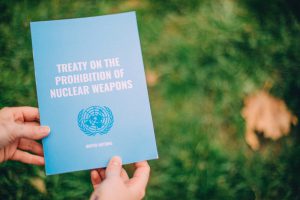 NORTHAMPTON — A treaty to eliminate nuclear weapons and ban anything associated with their development and manufacture has been ratified by 69 countries, with an additional 28 countries in the process of ratification, since the international agreement was signed in 2017.
NORTHAMPTON — A treaty to eliminate nuclear weapons and ban anything associated with their development and manufacture has been ratified by 69 countries, with an additional 28 countries in the process of ratification, since the international agreement was signed in 2017.
The United States, though, along with many of its allies and another eight nations that possess nuclear weapons, remain holdouts to the Treaty on the Prohibition of Nuclear Weapons, otherwise known as the Nuclear Weapon Ban Treaty.
For the first time on Monday, though, as the weeklong Second Meeting of State Parties to the Treaty on the Prohibition of Nuclear Weapons got underway at the United Nations in New York, a member of the U.S. Congress was present for the discussions.
Wasted: 2022 Global Nuclear Weapons Spending – New Report from the International Campaign to Abolish Nuclear Weapons
In its report “Wasted: 2022 Global Nuclear Weapons Spending” the International Campaign to Abolish Nuclear Weapons shows in 2022, the year of the Russian invasion of Ukraine, nine nuclear-armed states spent $82.9 billion on their nuclear weapons, more than $157,000 per minute, an overall increase of $2.5 billion from 2021.
By the International Campaign to Abolish Nuclear Weapons (ICAN) | June 12, 2023 icanw.org
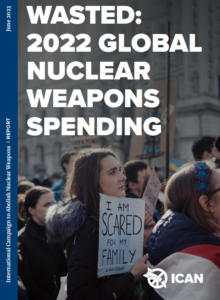 Download the Executive Summary
Download the Executive Summary
Read the Executive Summary in Italian
Download the full report
Nine countries spent $82.9 billion on nuclear weapons, of which the private sector earned at least $29 billion in 2022. The United States spent more than all of the other nuclear armed states combined, $43.7 billion. Russia spent 22% of what the U.S. did, at $9.6 billion, and China spent just over a quarter of the U.S. total, at $11.7 billion.
This is the fourth annual report documenting massive investments in global nuclear weapons spending. Through an ever-changing and challenging security environment, from security threats of climate change to the COVID-19 pandemic to the Russian invasion of Ukraine, nuclear weapons spending has steadily increased, with no resulting measurable improvement on the security environment. If anything, the situation is getting worse.
As companies throw money at lobbyists and researchers to assert the continued relevance and value of nuclear weapons, the record shows the inutility of weapons of mass destruction to address modern security challenges — and the legitimate fear, backed by peer-reviewed scientific evidence, that they can end global civilisation as we know it.
ICAN: The U.S. Spent $43.7 Billion on Nuclear Weapons Last Year—More Than EVERY Other Nuclear-Armed Nation COMBINED
A new report from the Nobel Peace Prize-winning International Campaign to Abolish Nuclear Weapons shows that the world’s nine nuclear-armed countries spent a total of $82.9 billion on nuclear weapons, “of which the private sector earned at least $29 billion in 2022.” The United States spent more than all of the other nuclear armed states combined, $43.7 billion. Russia spent 22% of what the U.S. did, at $9.6 billion, and China spent just over a quarter of the U.S. total, at $11.7 billion.
ICAN states, “The nine nuclear-armed states may have wasted $157,644 a minute on nuclear weapons in 2022, but no matter how much they spend, their nuclear weapons remain tools of terror and intimidation propped up by a mythical tale of deterrence that is rapidly unravelling.
“Through an ever-changing and challenging security environment, from security threats of climate change to the Covid-19 pandemic to the Russian invasion of Ukraine, nuclear weapons spending has steadily increased, with no resulting measurable improvement on the security environment…If anything, the situation is getting worse.”
“Luck, not reason or strategy, has kept nuclear weapons from being used in warfare for the past 78 years. But we can’t count on our luck to hold in perpetuity.”
If you need any more convincing of this fact, or of how “unacceptably dangerous nine countries’ reliance on nuclear weapons is,” watch this POV video where you’re the President and a nuclear attack is imminent. What do you do?
@kurz_gesagt POV: You’re the President and a nuclear attack is imminent. What do you do? #kurzgesagt #kurzgesagt_inanutshell #inanutshell #kurzgesagt_discover #nuclearwar #nuclearattack #nuclearattackwarning #pov #warzone #atomicbombs #emergency #urgent #decision #now ♬ original sound – Kurzgesagt – In A Nutshell
ICAN: G7 Hiroshima summit fails to deliver progress on nuclear disarmament
“This is more than a missed opportunity. With the world facing the acute risk that nuclear weapons could be used for the first time since Hiroshima and Nagasaki were bombed, this is a gross failure of global leadership. Simply pointing fingers at Russia and China is insufficient. We need the G7 countries, which all either possess, host or endorse the use of nuclear weapons, to step up and engage the other nuclear powers in disarmament talks if we are to reach their professed goal of a world without nuclear weapons” — ICAN Executive Director Daniel Hogsta
Update 20 May 2023: the G7 leaders have just issued the final communique from their summit in Hiroshima. It claims they have “taken concrete steps to strengthen disarmament and non-proliferation efforts, towards the ultimate goal of a world without nuclear weapons with undiminished security for all” but it doesn’t say what these steps are. That’s because it can’t.
What we got from the leaders’ discussion on nuclear weapons yesterday was a rehash of ideas and proposals that have failed to deliver progress over the past three decades. They did not announce anything new or concrete. They couldn’t even bring themselves to follow the G20 and TPNW member states by condemning all nuclear threats. Instead they reserved their condemnation for Russia’s and North Korea’s threats, which, while justified, fails to acknowledge how the G7’s own nuclear doctrines are based on the threat to use nuclear weapons and so contribute to the acute danger these weapons pose to everyone.
The G7’s detailed statement “G7 Leaders’ Hiroshima Vision on Nuclear Disarmament”, issued on May 19, falls far short of providing any meaningful outcomes for nuclear disarmament. After months of preparation and amid high expectations, the leaders are missing the moment to make the world safer from nuclear weapons, instead of confronting nuclear threats with a concrete, credible plan for nuclear disarmament – like the Treaty on the Prohibition of Nuclear Weapons- they are barely even paying lip service to the horrors of Hiroshima, the first city attacked by nuclear weapons.
Nuclear Ban Treaty: Updates & 2nd Anniversary Celebrations 🎉

January 22, 2023
International, signatures, TPNW: Djibouti signs TPNW
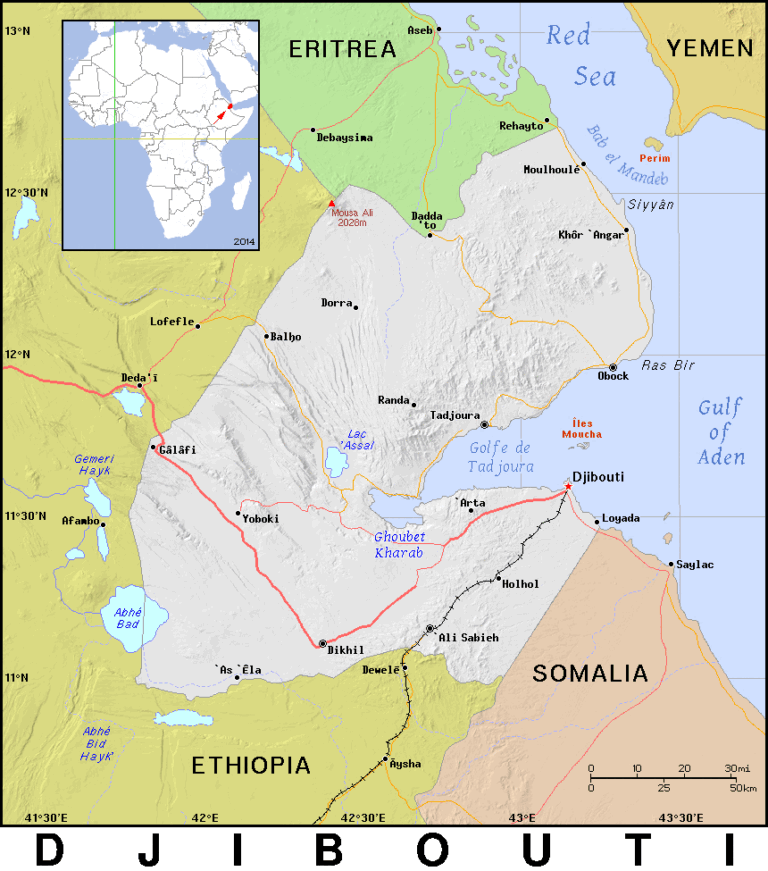
On January 9, 2023, the small island country of Djibouti became the 92nd country to sign the Treaty on the Prohibition of Nuclear Weapons (TPNW). Djibouti voted in favor of the treaty at the treaty negotiations in 2017 and is the latest country to finally sign it. Another 30 countries voted for the treaty and have not yet signed it, while 27 countries have signed the treaty but are still going through the ratification process.
Djibouti is now committed to a swift ratification process, so it can join the 68 countries who have signed and fully ratified the TPNW, putting the treaty’s prohibitions into effect in those countries. Djibouti is also calling on all countries who have not yet done so to sign and ratify the treaty. A UN General Assembly resolution passed in December 2022 called on all states to sign, ratify, or accede to the TPNW “at the earliest possible date”.
The post Djibouti signs TPNW appeared first on NuclearBan.US.
Letter to Biden: Sign the TPNW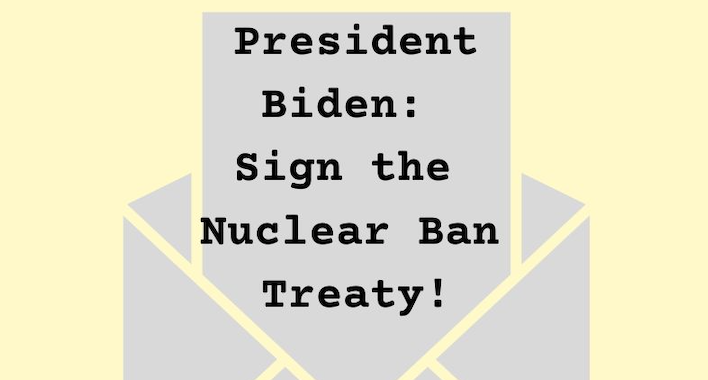
Draft letter to President Biden is here:
To sign your organization onto this letter:
Op-Ed/short version of the Biden letter here:
To send this to Biden as an individual, click here
The post Letter to Biden: Sign the TPNW appeared first on NuclearBan.US.
ICAN IGTV
The international campaign to abolish nuclear weapons on instagram (@nuclearban) tackling some of the more technical legal questions of the treaty: what does entry into force mean, what happens now? Joined with experts, they dive into international law and the TPNW (without getting too technical!) through instagram chats to help break it all down.
View this post on InstagramTim Wright in conversation with Associate Professor Treasa Dunworth of the University of Auckland
A post shared by ICAN (@nuclearban) on
View this post on InstagramA post shared by ICAN (@nuclearban) on
View this post on InstagramA post shared by ICAN (@nuclearban) on
Resources
Nuclear-Weapon-Free States Demand Immediate End to Deterrence Policies, Start of Dismantling Atomic Arsenals, as First Committee Continues General Debate
Calling for swift remedies to mend a fractured non-proliferation landscape, nuclear-weapon-free States demanded an immediate end to deterrence policies and the start of dismantling atomic arsenals, as the First Committee (Disarmament and International Security) moved into the third day of its general debate.
UNITED NATIONS MEETINGS COVERAGE GENERAL ASSEMBLY FIRST COMMITTEE SEVENTY-SIXTH SESSION, 4TH MEETING (PM)
As thousands of atomic bombs located around the world pose grave risks to humanity, delegates implored nuclear-weapon States to steer the planet onto a path of peace. Some suggested such ways to do so, with delegates agreeing that dismantling nuclear arsenals must start now, in line with the Treaty on the Non-Proliferation of Nuclear Weapons and under safeguards established by the International Atomic Energy Agency (IAEA). Many urged all nations with atomic arsenals to sign, ratify and fully implement existing conventions, including the Treaty on the Prohibition of Nuclear Weapons, which entered into force in January, and some decried the quarter of a century delay in entering into force the Comprehensive Nuclear-Test-Ban Treaty. To rectify this, many called for nuclear-weapon States to sign and ratify it so that atomic bomb testing can become part of the past.
Nuclear Disarmament tops UN agenda
3 Oct 2020 – The United Nations General Assembly holds a high-level meeting to commemorate the International Day for the Total Elimination of Nuclear Weapons. Because of the COVID-19 pandemic, many leaders speak by pre-recorded video to call for a nuclear-weapon-free world.
CALIFORNIA LEADS THE WAY IN SUPPORT OF NUCLEAR DISARMAMENT
California State Legislature Passes Pro-Nuclear Disarmament Resolution
Sacramento–Assembly Joint Resolution 33 (AJR 33), introduced by Santa Barbara’s State Assembly member, Monique Limón, passed in the state Senate today by a vote of 22 to 8. This marks a huge step forward in California’s support of nuclear disarmament and puts the state at the forefront of this critical issue.
The resolution calls on federal leaders and our nation to embrace the Treaty on the Prohibition of Nuclear Weapons, make nuclear disarmament the centerpiece of our national security policy, and spearhead a global effort to prevent nuclear war. (More on the Treaty here.)
Rick Wayman, Deputy Director of the Nuclear Age Peace Foundation, a non-partisan, non-profit organization headquartered in Santa Barbara whose mission is to create a peaceful world, free of nuclear weapons, was asked by Limón to testify in support of the Resolution.
ICAN Honored: 2017 Nobel Peace Prize Ceremony
- 6.36 – Address of Nobel Committee leader Berit Reiss-Andersen on the choice of ICAN for the 2017 Peace Prize (view transcript)
- 35.12 – Presentation of the award to ICAN’s Beatrice Fihn and Setsuko Thurlow
- 44.22 – ICAN Director Beatrice Fihn address (view transcript)
- 1.03.55 – Setsuko Thurlow address (view transcript)
Nobel Peace Prize For International Campaign to Abolish Nuclear Weapons
“The Norwegian Nobel Committee has decided to award the Nobel Peace Prize for 2017 to the International Campaign to Abolish Nuclear Weapons (ICAN). The organization is receiving the award for its work to draw attention to the catastrophic humanitarian consequences of any use of nuclear weapons and for its ground-breaking efforts to achieve a treaty-based prohibition of such weapons. We live in a world where the risk of nuclear weapons being used is greater than it has been for a long time. Some states are modernizing their nuclear arsenals, and there is a real danger that more countries will try to procure nuclear weapons, as exemplified by North Korea. Nuclear weapons pose a constant threat to humanity and all life on earth.”
The award was the lead story this morning on Germany’s Deutsche Welle with a video interview with Yanthe Hall of ICAN Germany.
Democracy Now, Oct. 6: Amy Goodman interviews Tim Wright, Asia-Pacific director of ICAN on the Nobel award and the ban treaty. (watch segment).
International Campaign to Abolish Nuclear Weapons Wins Nobel Peace Prize- NukeWatch Calls on New Mexico Politicians and Santa Fe Archbishop To Support Drive Towards Abolition
Santa Fe, NM.
Nuclear Watch New Mexico strongly applauds the awarding of the Nobel Peace Prize to the International Campaign to Abolish Nuclear Weapons (disclosure: NukeWatch is one of ICAN’s ~400 member groups around the world). This award is especially apt because the peoples of the world are now living at the highest risk for nuclear war since the middle 1980’s, when during President Reagan’s military buildup the Soviet Union became convinced that the United States might launch a pre-emptive nuclear first strike. Today, we not only have Trump’s threats to “totally destroy” North Korea and Kim Jong-un’s counter threats, but also renewed Russian fears of a US preemptive nuclear attack… Generally unknown to the American taxpayer, our government has quietly tripled the lethality of the US nuclear weapons stockpile…”
What Will Be Different After September 20, 2017?
“So here is a question for all of us to think about: how will it change the global conversation when a treaty is affirmed by so many countries from all over the world? What will it feel like to know the clock is ticking down to nuclear weapons abolition . . . instead of worrying that the clock is ticking down to nuclear war? What will be different about the way people talk about the behavior of the states that still stubbornly hold on to nuclear weapons (and threaten each other with them)? In what light will it cast the countries that rely on the “nuclear umbrella” of countries like the US?”
-Joe Scarry, “Nuclear Weapons Abolition: What Will Be Different After September 20?”
The Ban Treaty: What’s Next?
Ray Acheson
“The next process is going to be signing on to the treaty. It’ll open for signature at the U.N. in New York on the 20th of September. And after that, they’ll have to go through a national ratification process in order for it to enter into force. But that should all happen within the next year or two, and then it will be international law that is binding on all of the countries that have adhered to it, which means, in some cases, they’re going to have to change their practices and policies that may enable or facilitate the use or the possession of nuclear weapons.
“There could be economic divestment, for example, from nuclear weapon-producing companies. There could be changes of national law that currently permit transit of nuclear weapons through territorial waters. There could be different shifts in policies and practices around military training exercises that currently involve the preparation to use nuclear weapons. And it will also be an iterative process of building up the stigmatization and the norm against nuclear weapons through the public policy, through parliaments and through national discourse.”
Ray Acheson is director of Reaching Critical Will, the disarmament program of the Women’s International League for Peace and Freedom; she represents WILPF on the steering committee of the International Campaign to Abolish Nuclear Weapons.
Interview with Rick Wayman and Ira Helfland on the Ban Treaty
Rick Wayman:
“I think one of the most exciting things about this treaty process is the very deep and meaningful involvement of civil society, of my group, the Nuclear Age Peace Foundation, of the International Physicians for the Prevention of Nuclear War. Many of us were under the umbrella of an international campaign called the International Campaign to Abolish Nuclear Weapons. This voice really was unstoppable, but I also want to mention, to the credit of the nations that participated in this UN process, they gave civil society a big voice. It was really unlike any other UN process that I have been a part of before. I think that this, in many ways, revolutionized the way that international diplomacy and international treaties are made, so I’m very excited about that and very hopeful for the future.”
Ira Helfland:
“The nuclear weapons states did not participate in this process and that’s been the root of the problem. They have not wanted to honor their obligations under the Non-Proliferation Treaty to eliminate their nuclear arsenals. The rest of the world has finally lost patience. They’re concerned by the overwhelming medical evidence that even a very limited nuclear war would be a worldwide catastrophe. The rest of the international community has issued a real challenge saying that they will no longer accept a situation in which nine countries hold the entire world, including their own people, hostage to these terribly dangerous nuclear arsenals.”
Read the full interview at The RealNews.com
Rick Wayman is the Director of Programs and Operations at the Nuclear Age Peace Foundation. He also serves on the Board of Directors of the Alliance for Nuclear Accountability, and is Co-Chair of the ‘Amplify: Generation of Change’ network for nuclear abolition.
Ira Helfand is a co-Founder and Past President of Physicians for Social Responsibility and co-President of PSR’s global federation the International Physicians for the Prevention of Nuclear War.
UN Adopts Treaty To Prohibit Nuclear Weapons
The treaty prohibits nations from developing, testing, producing, manufacturing, transferring, possessing, stockpiling, using or threatening to use nuclear weapons. It also prohibits them from assisting, encouraging or inducing anyone to engage in any of those activities. In addition, nations must not allow nuclear weapons to be stationed or deployed on their territory. (See FAQs on the treaty provisions at ICAN)
ICAN’s executive director, Beatrice Fihn: “We hope that today marks the beginning of the end of the nuclear age. It is beyond question that nuclear weapons violate the laws of war and pose a clear danger to global security… No one believes that indiscriminately killing millions of civilians is acceptable- no matter the circumstance- yet that is what nuclear weapons are designed to do. Today the international community rejected nuclear weapons and made it clear they are unacceptable.” (ref: ICAN)
Ray Acheson, director of the Women’s International League for Peace and Freedom disarmament program, ‘Reaching Critical Will’: “This is a treaty made by people. By diplomats who got inspired by an idea and went home to change their government’s positions. By activists writing, thinking, and convening, bringing together governments and civil society groups to figure out how to make things happen. By survivors who give their testimony despite the personal trauma of reliving their experiences… By campaigners who mobilize nationally to raise awareness and pressure their governments. By politicians who truly represent the will of their people and speak the truth in parliaments…” (Nuclear Ban Daily July 8)
Perry Project statement: UN Adopts New Treaty on the Prohibition of Nuclear Weapons
Arms Control Assoc: New Nuclear Weapons Prohibition Treaty Marks a Turning Point
Union of Concerned Scientists: Historic Treaty Makes Nuclear Weapons Illegal
Ploughshares Fund: A Stunning Rebuke To The Nuclear-Armed States
US, UK, France joint statement: “We do not intend to sign, ratify or ever become party to it.”
Nuclear Ban Treaty
Reaching Critical Will Twitter feed
Treaty on the Prohibition of Nuclear Weapons (PDF)
International Campaign to Abolish Nuclear Weapons
ICAN has posted a Flickr album of annotated photos of the UN Ban Treaty negotiations.
The Ban Treaty achievement was preceded by the three Conferences on the Humanitarian Impacts of Nuclear Weapons.
The Urgency of Banning Nuclear Weapons
Quotes
James Doyle
“Many citizens, scientists and laymen alike, view nuclear-weapons abolition as an essential milestone in the development of human civilization, a moral, ideological and practical campaign that could catalyze the transformation of international relations and improve the outlook for civilization at a critical time.”


